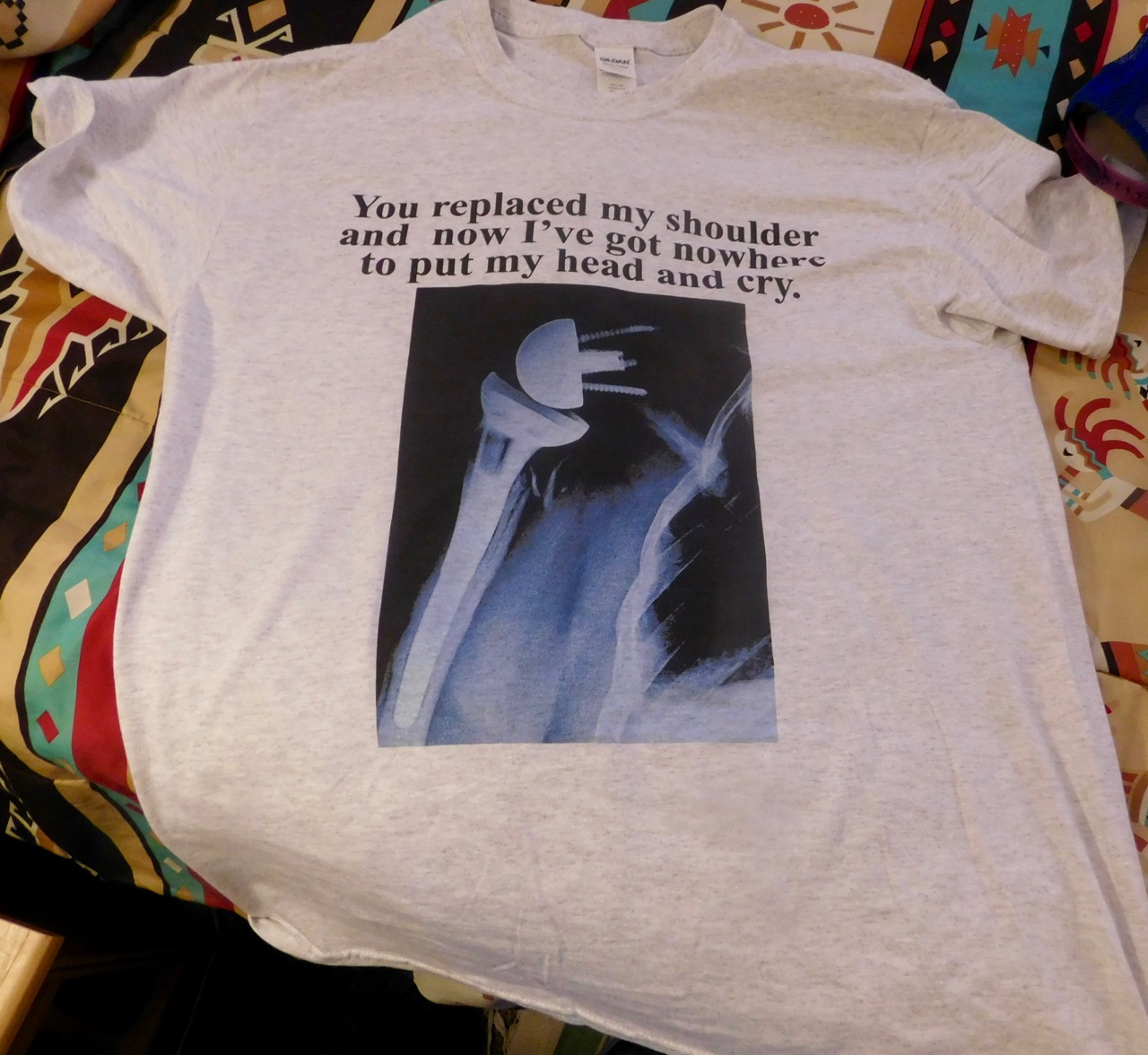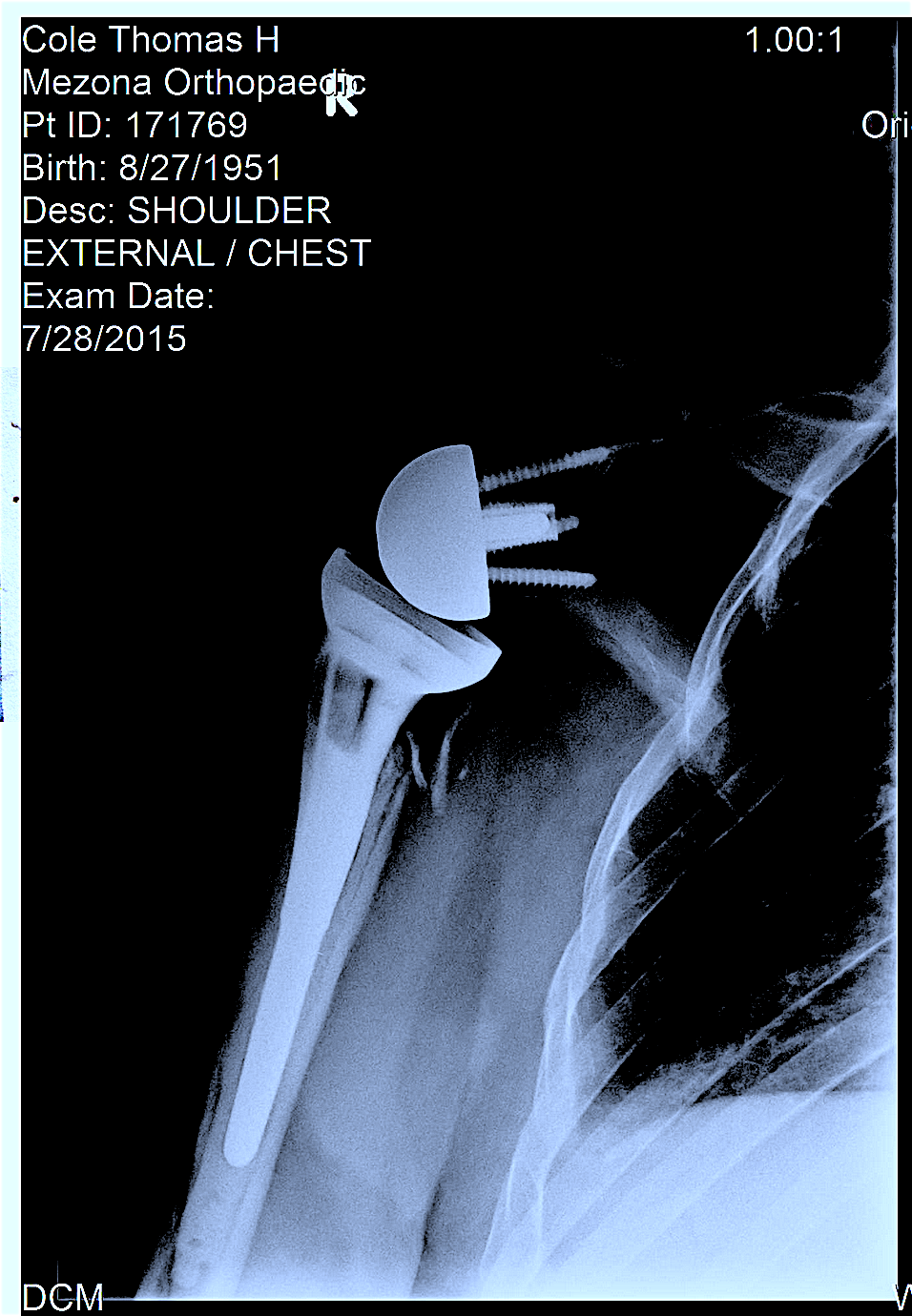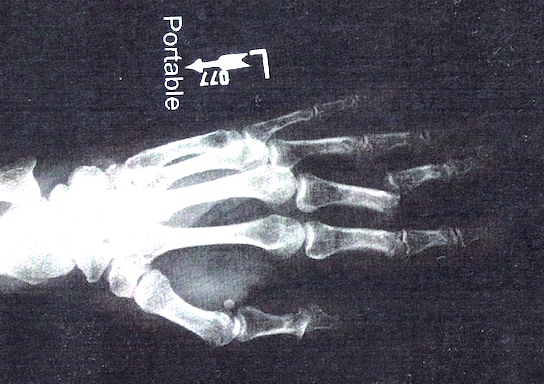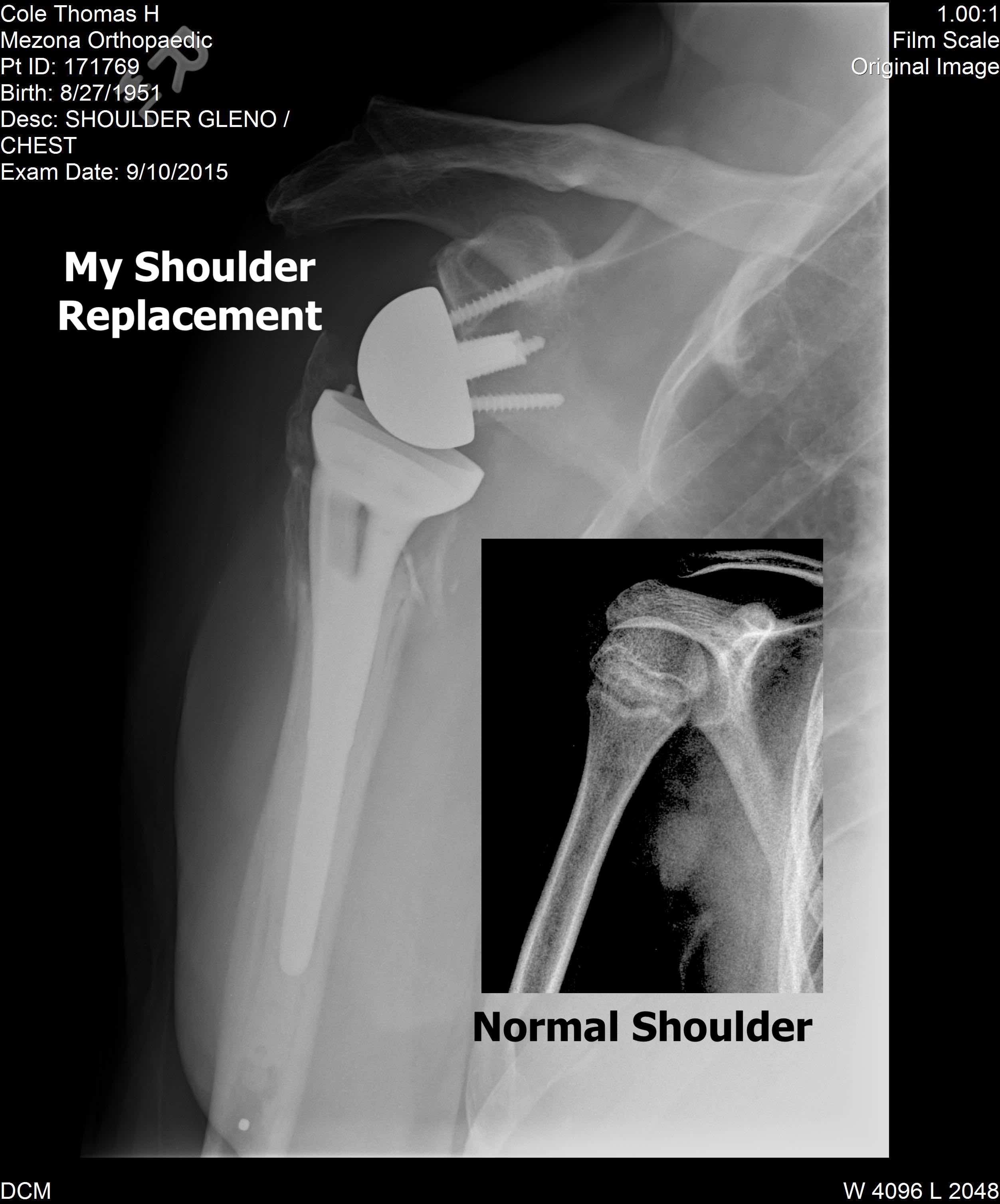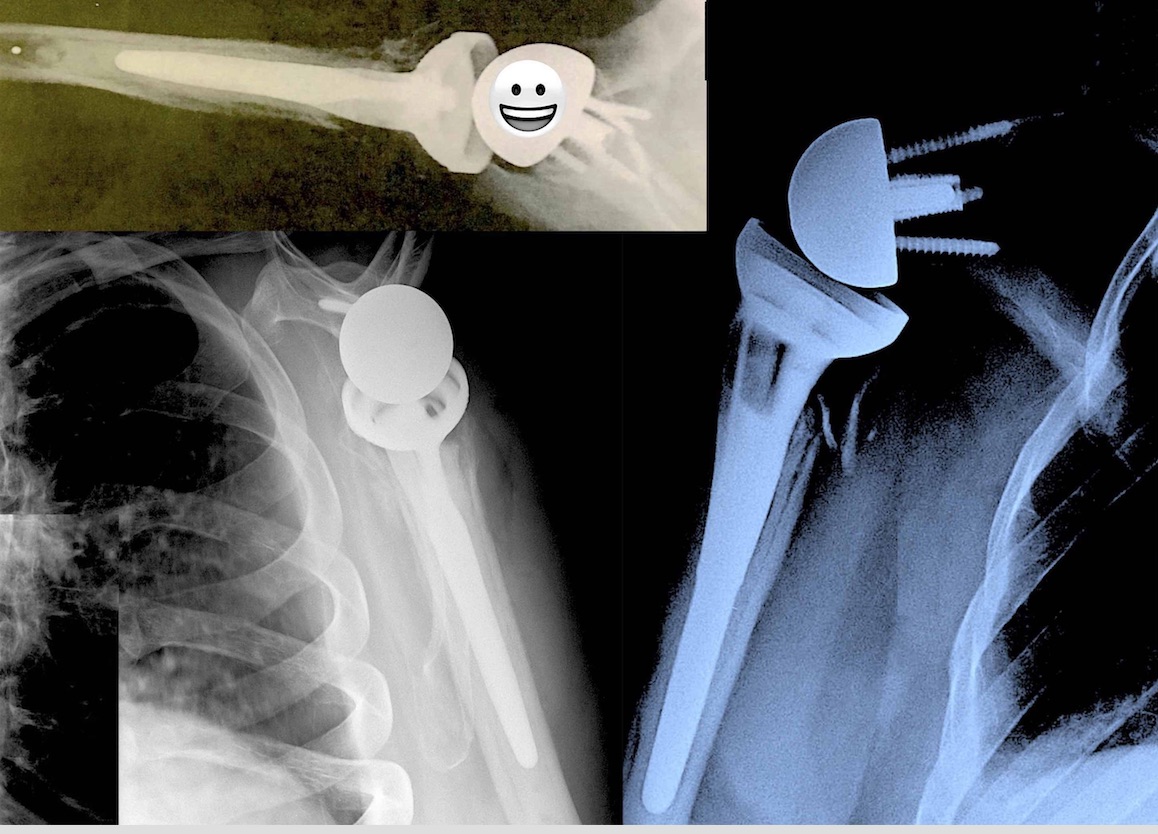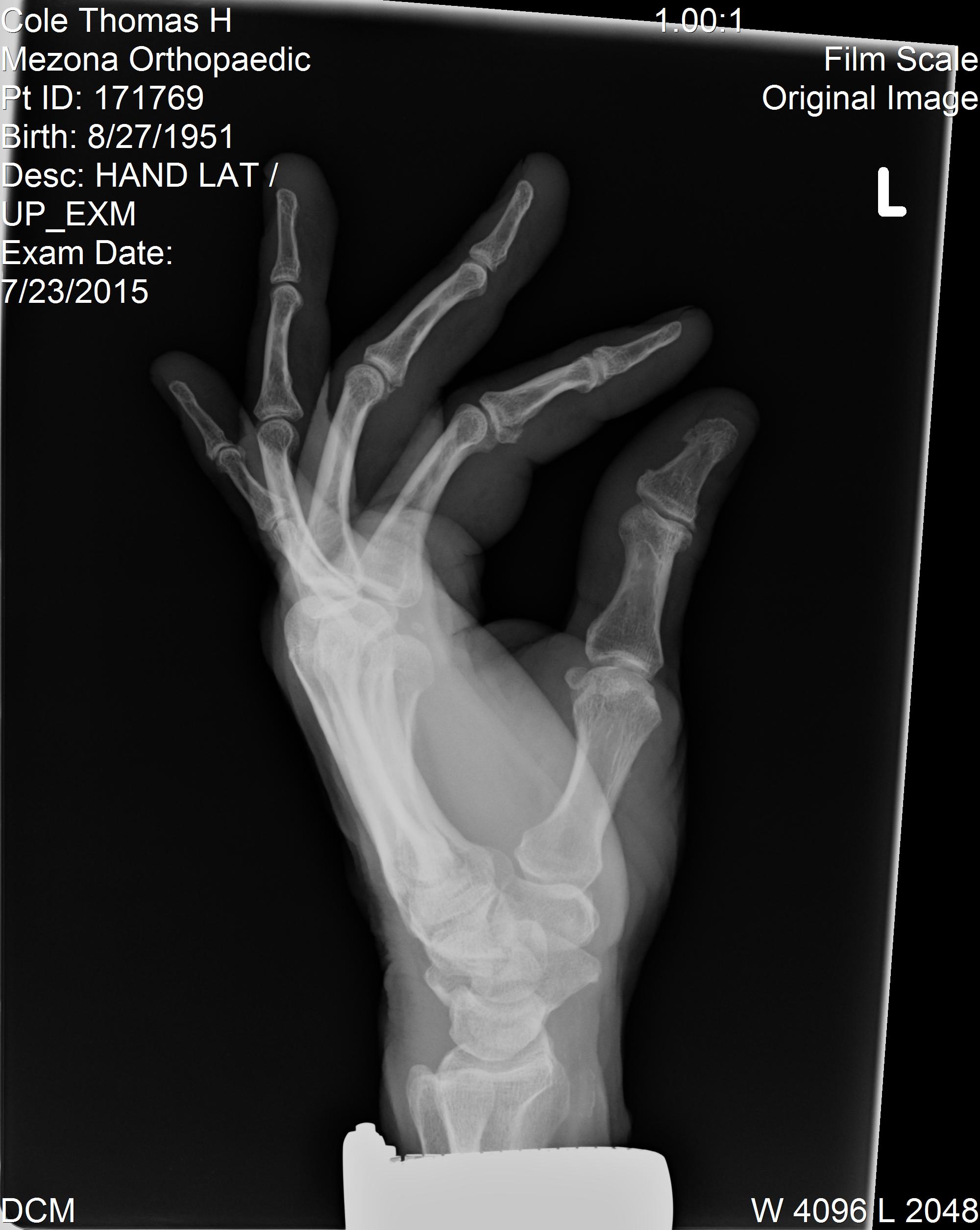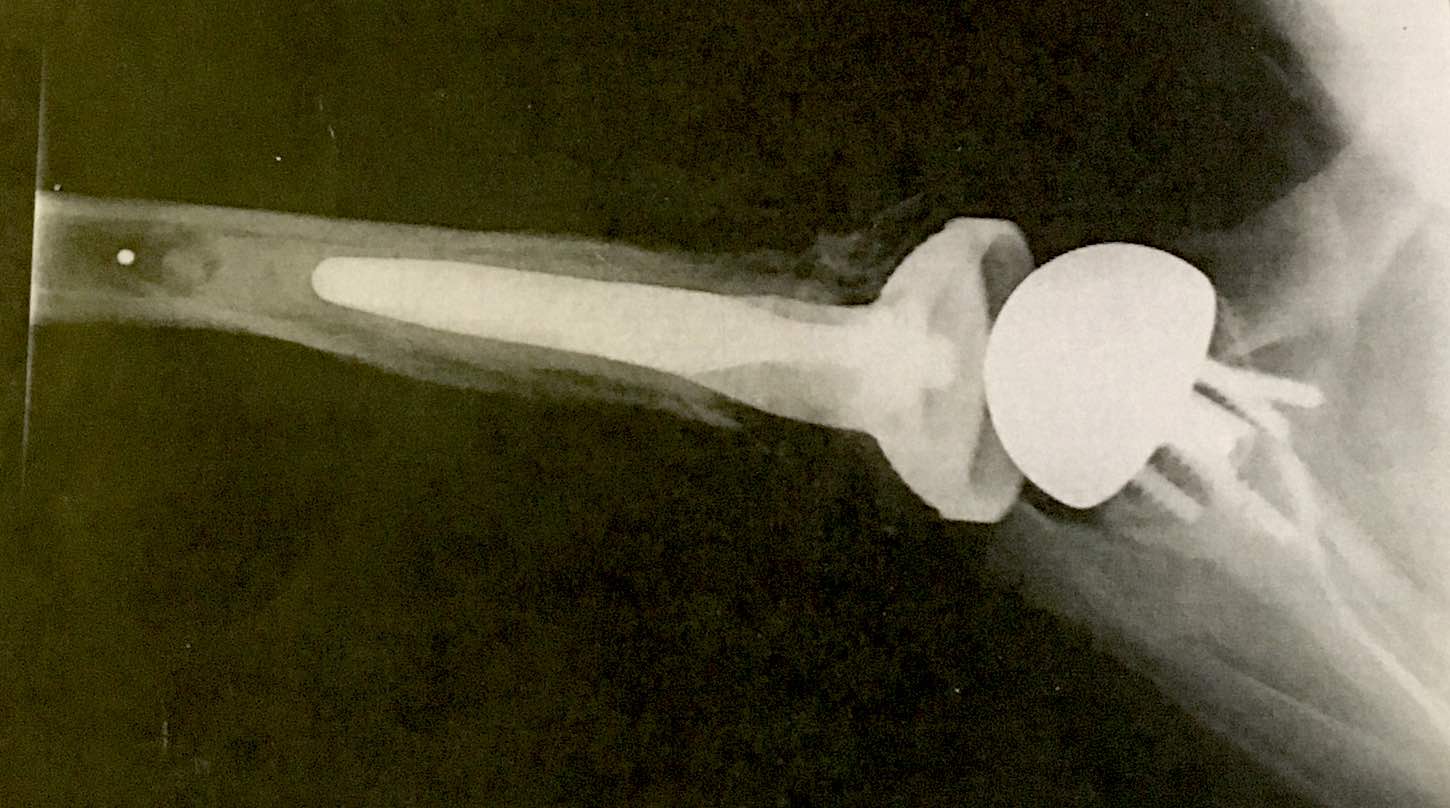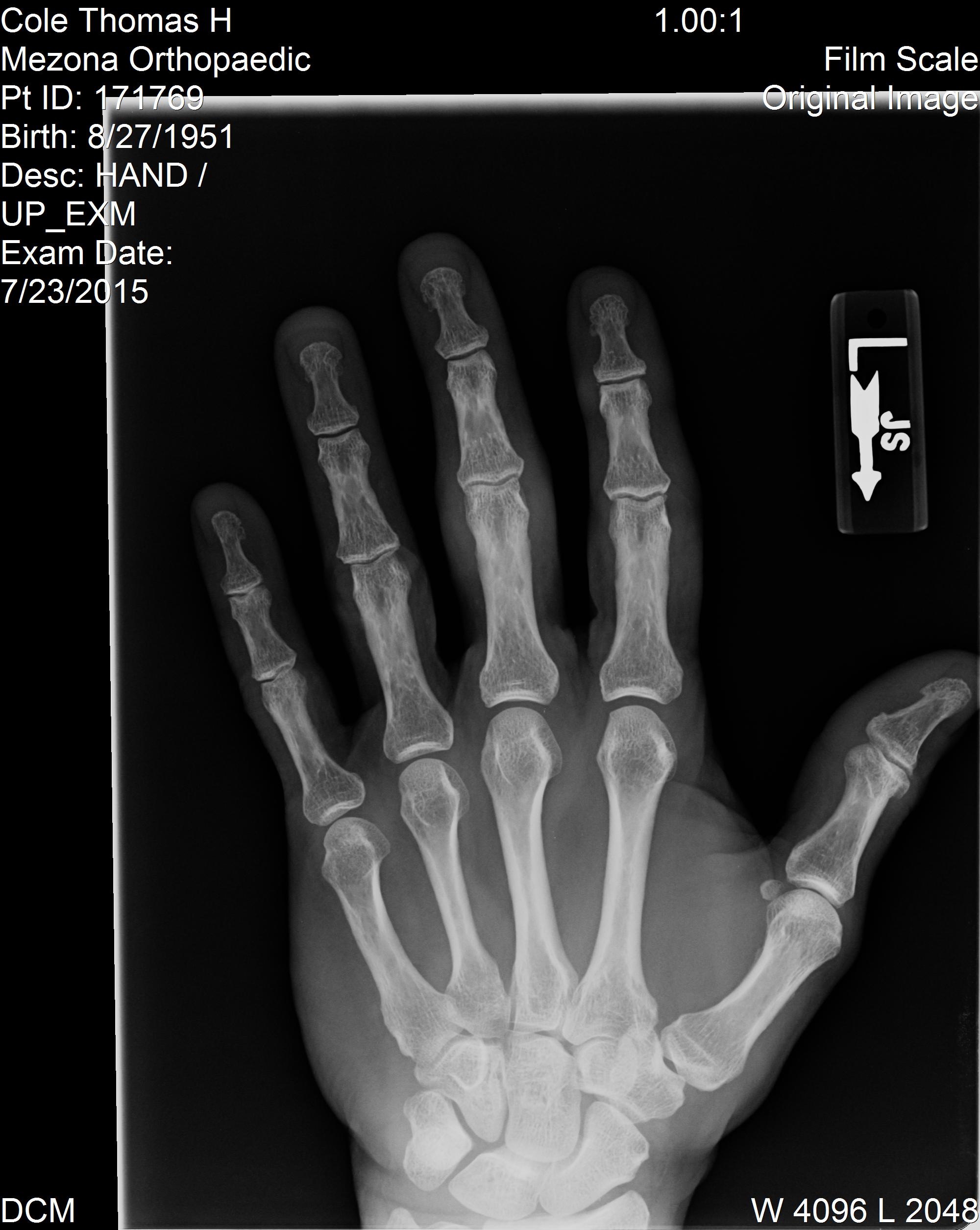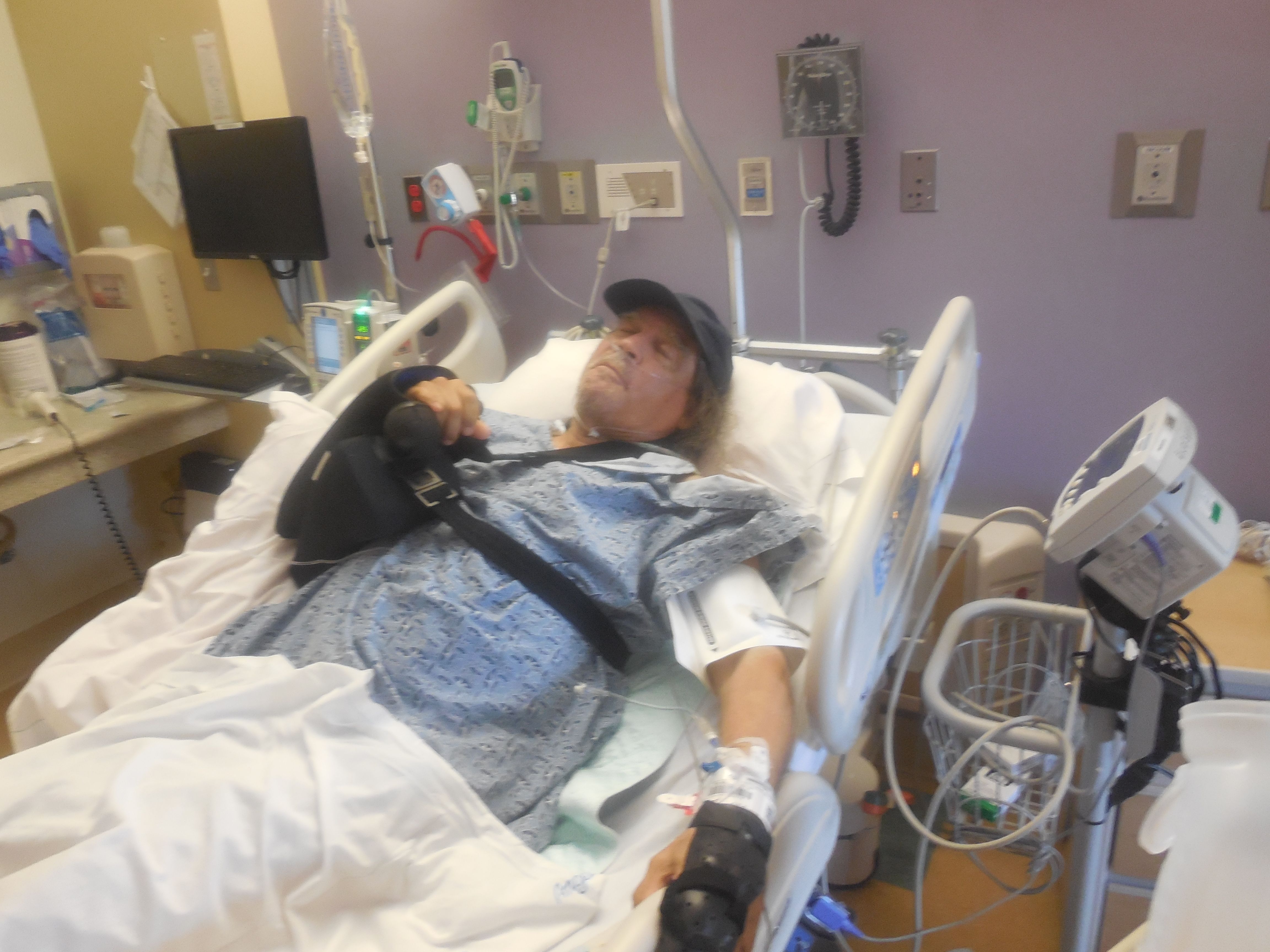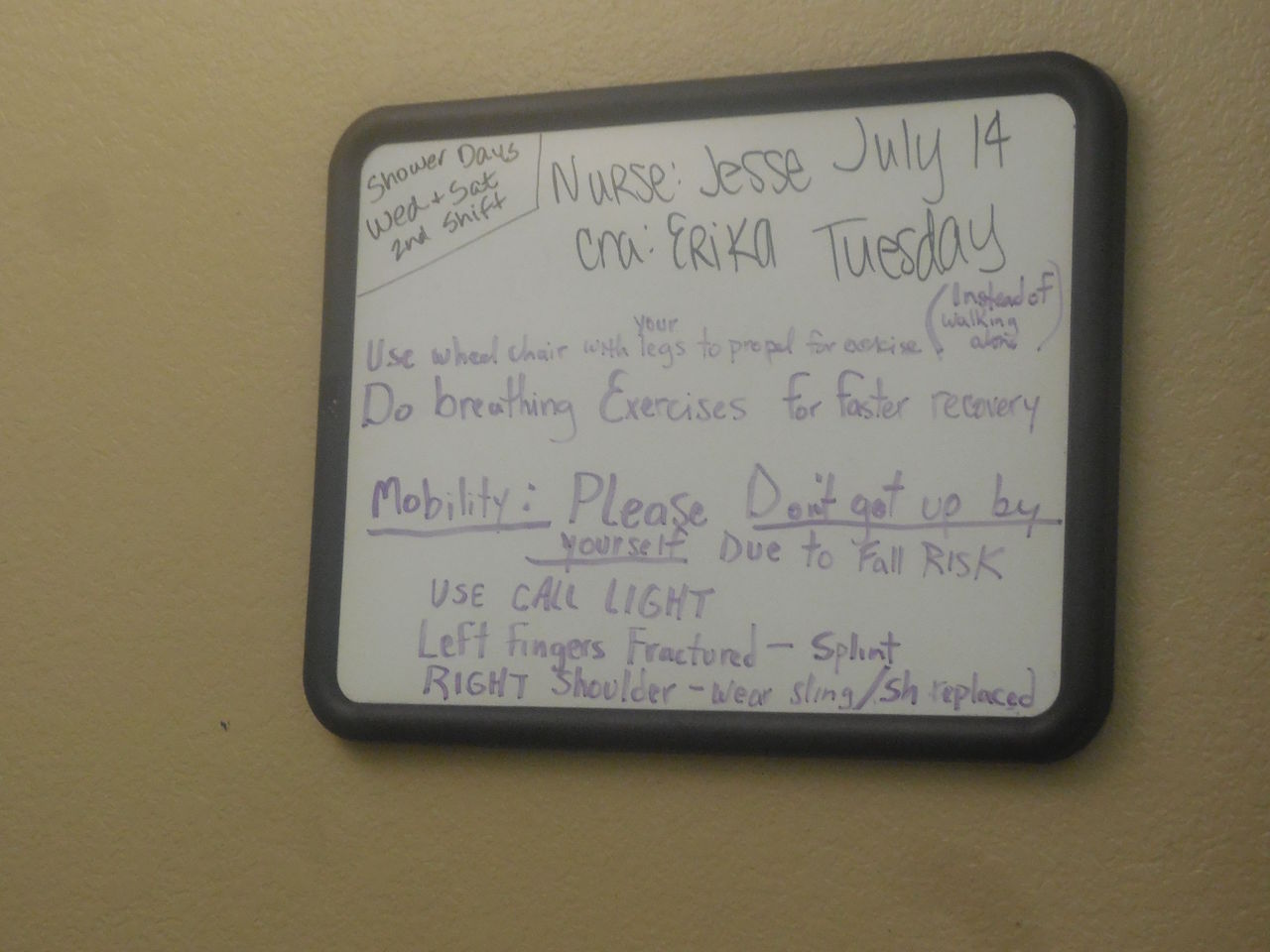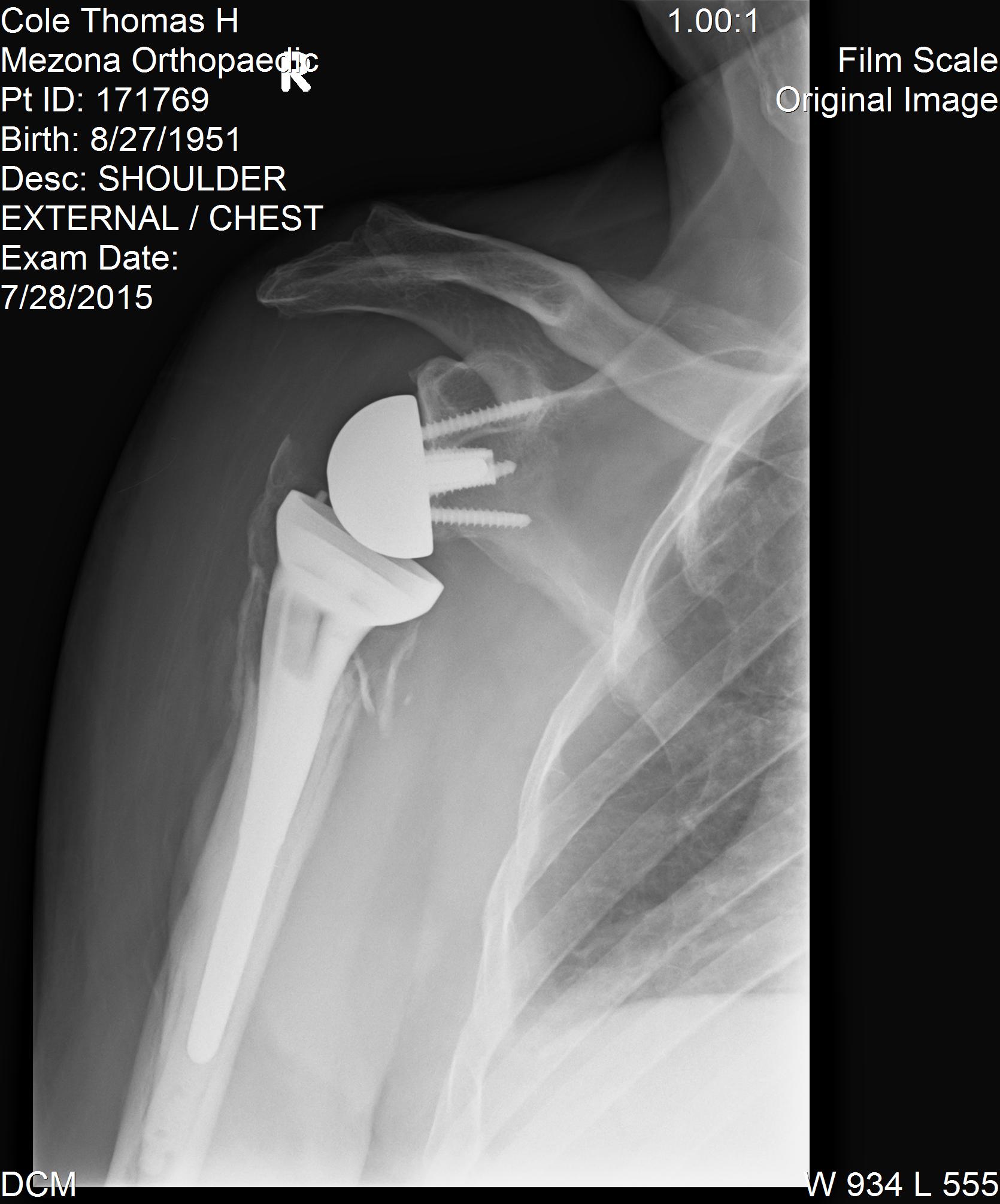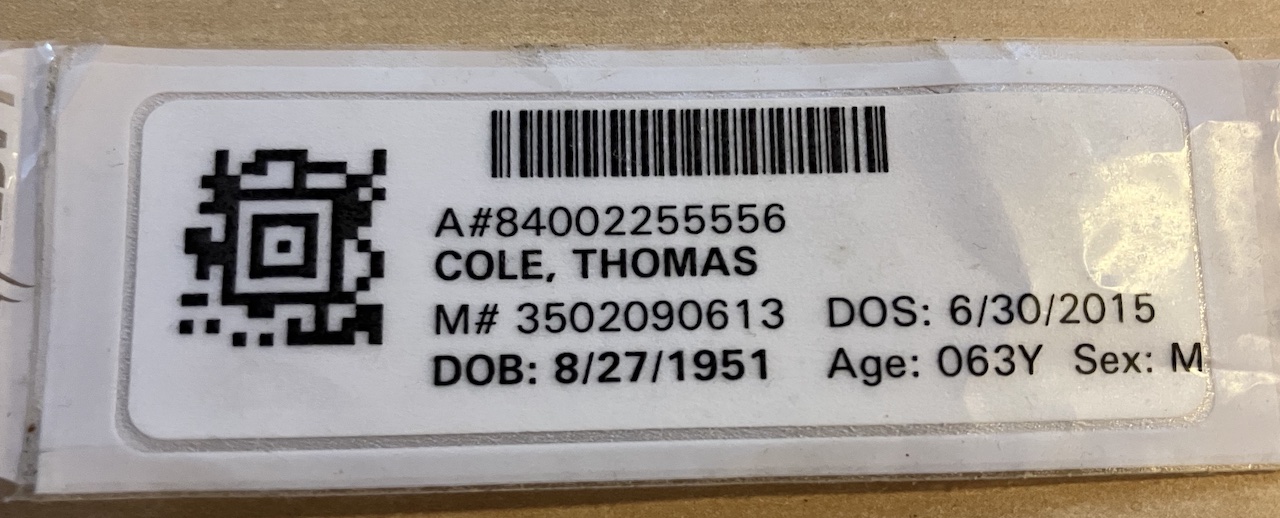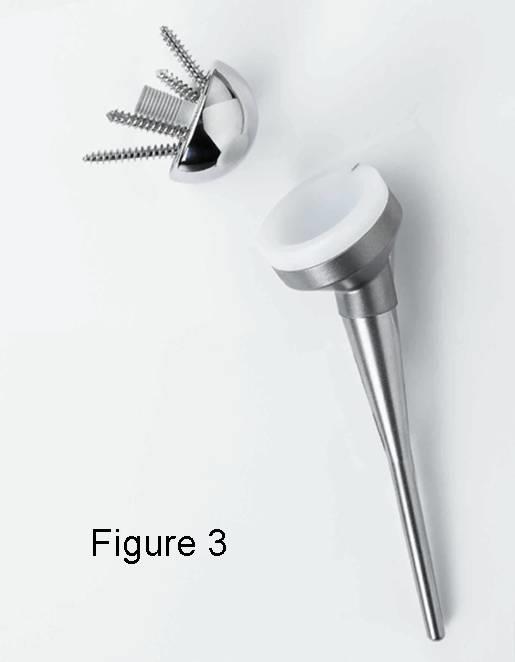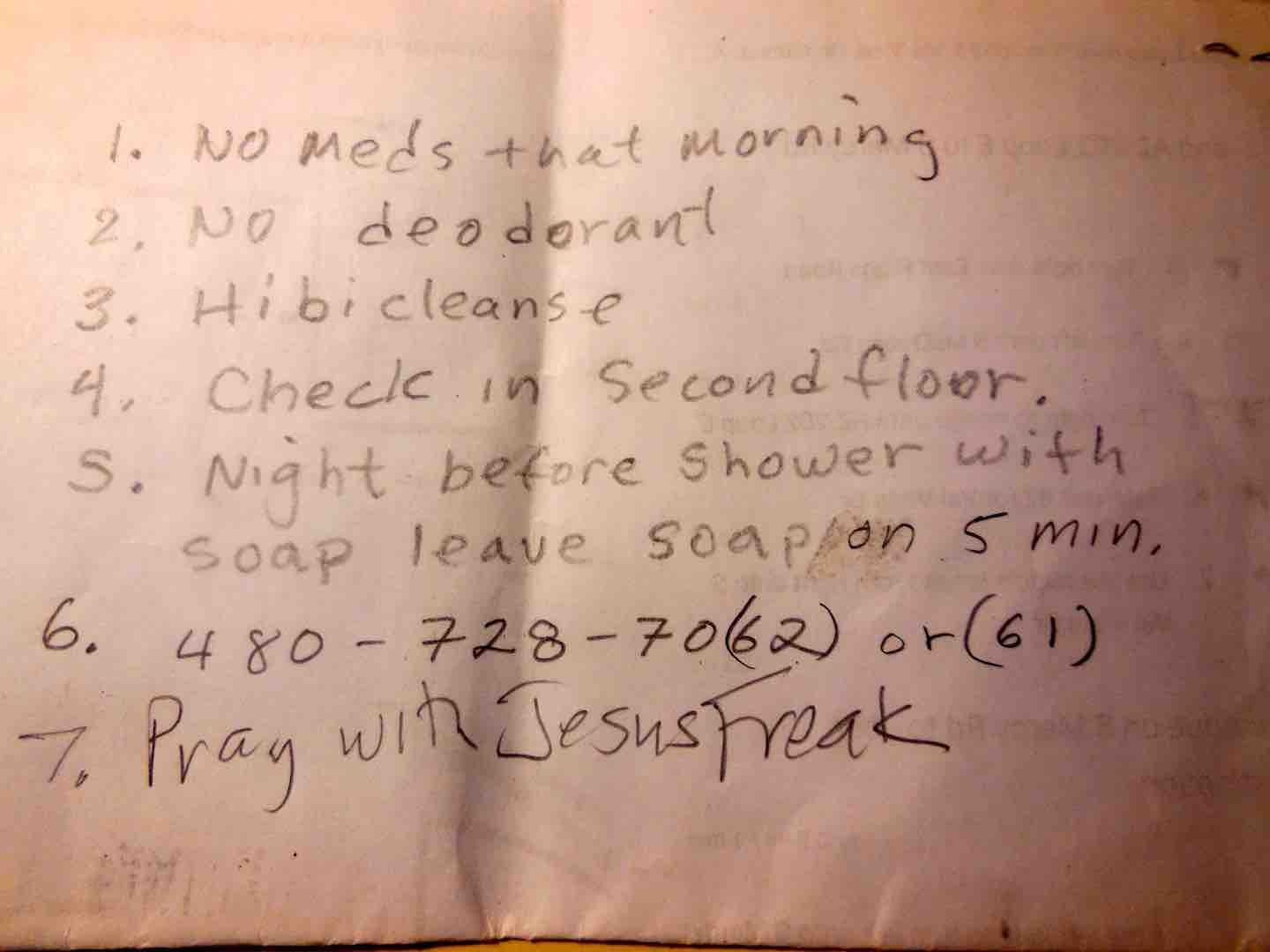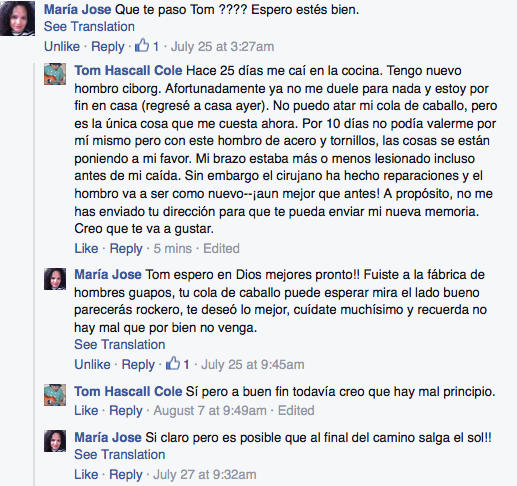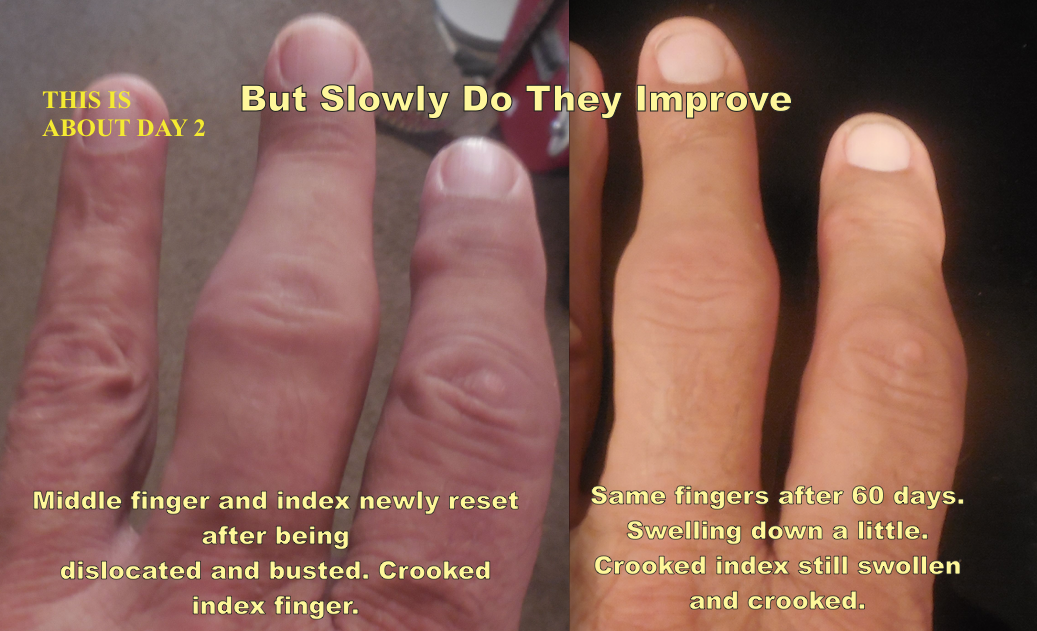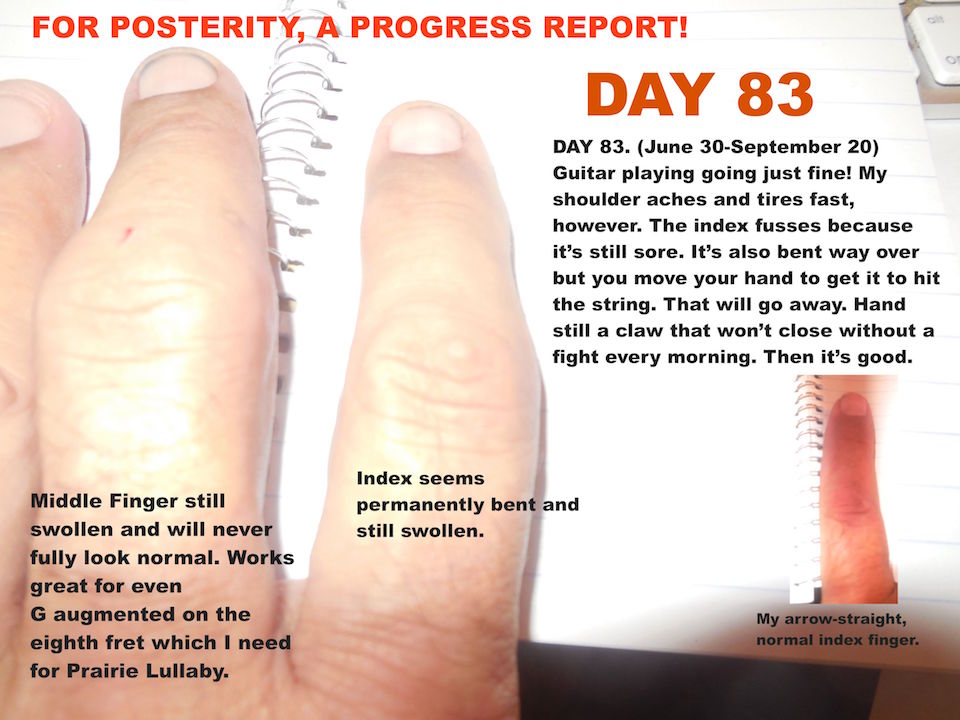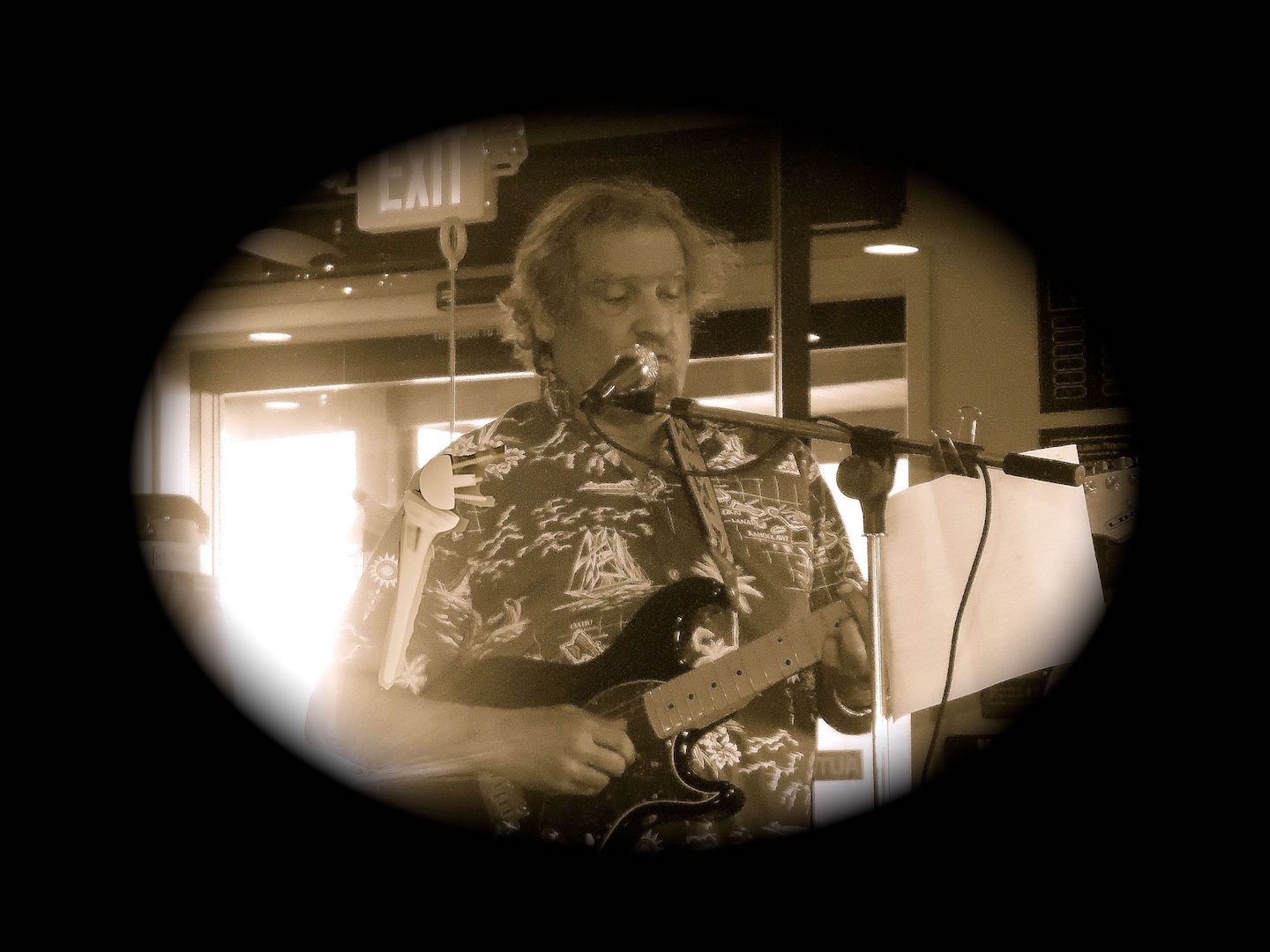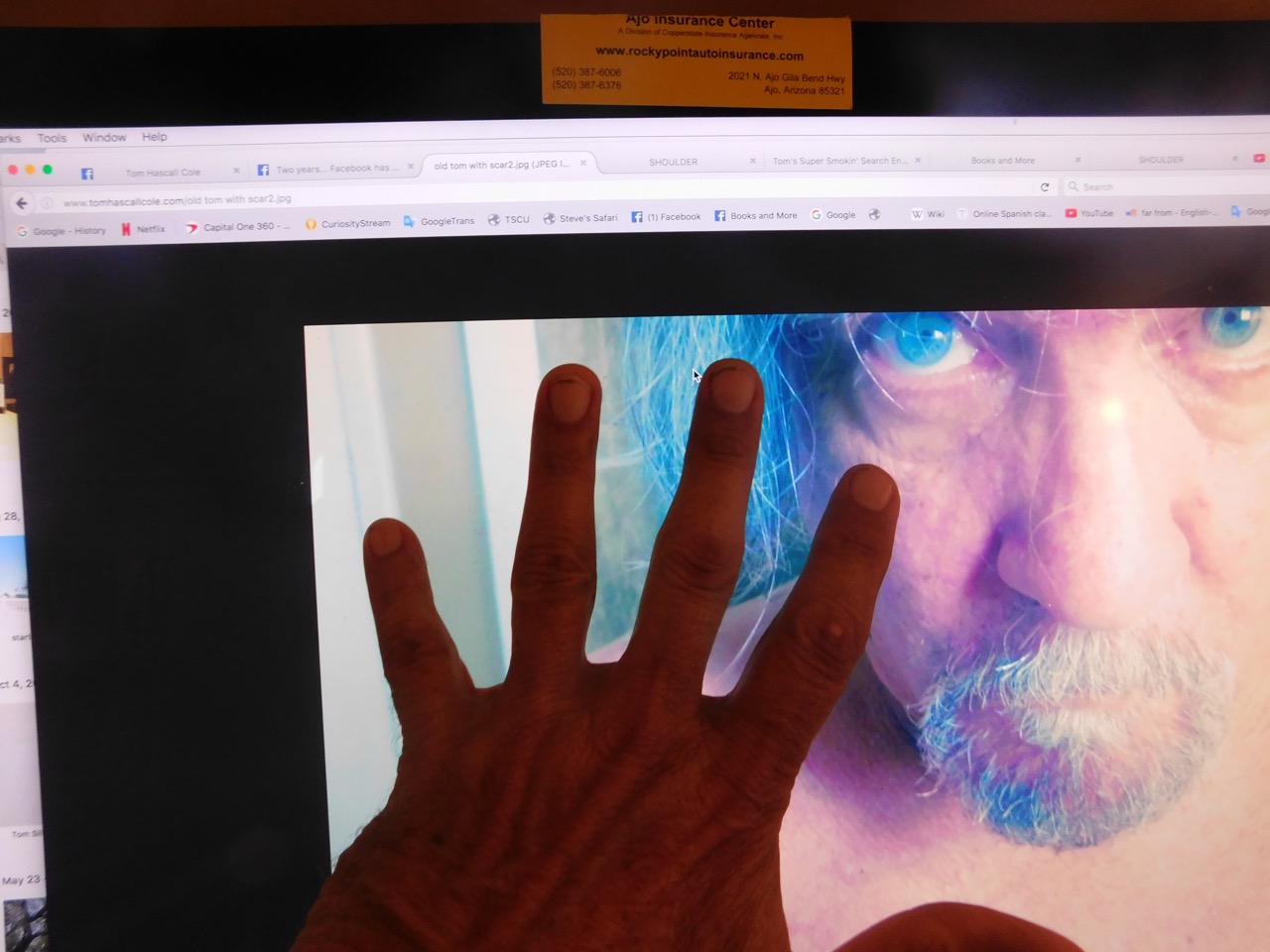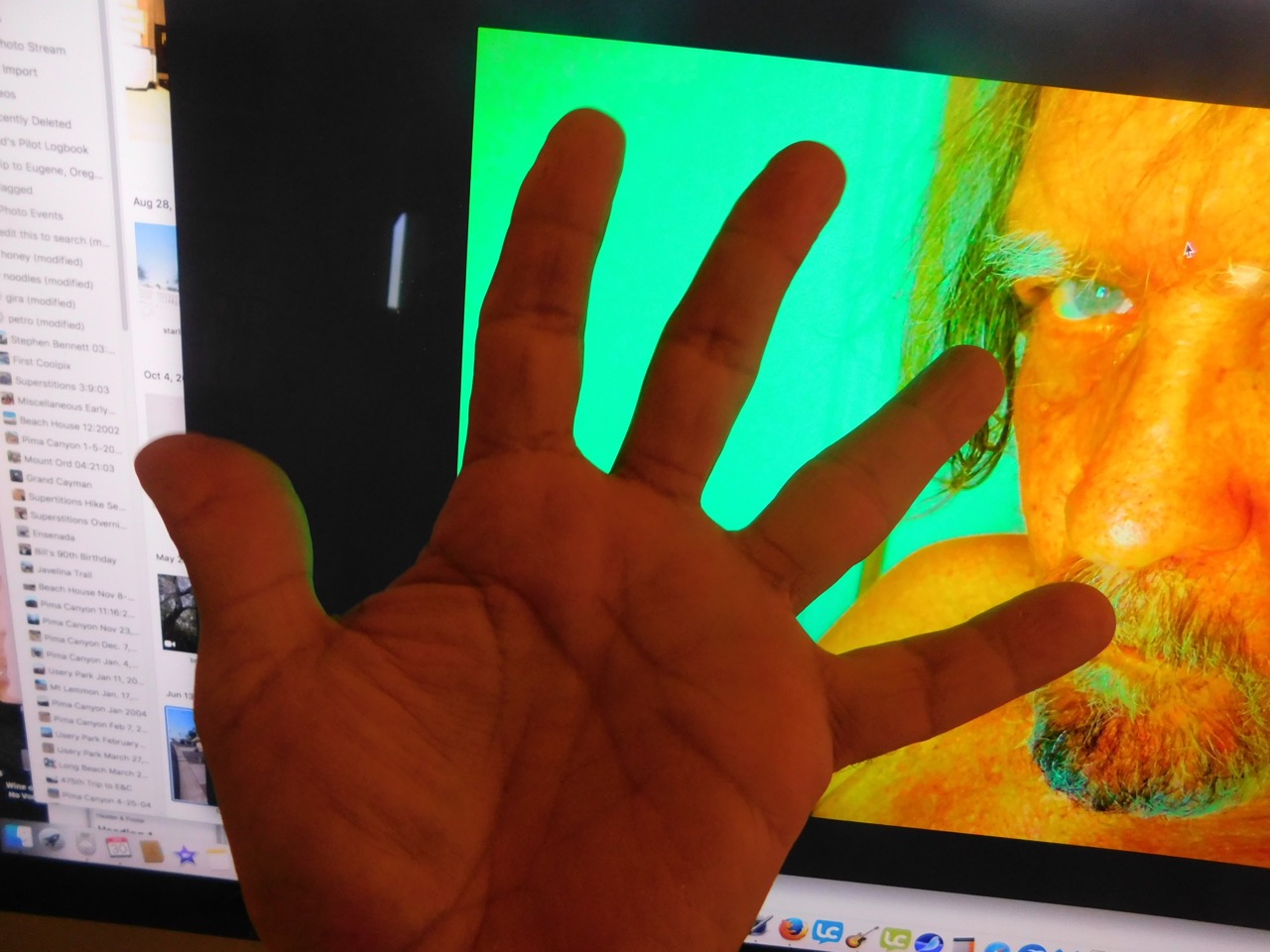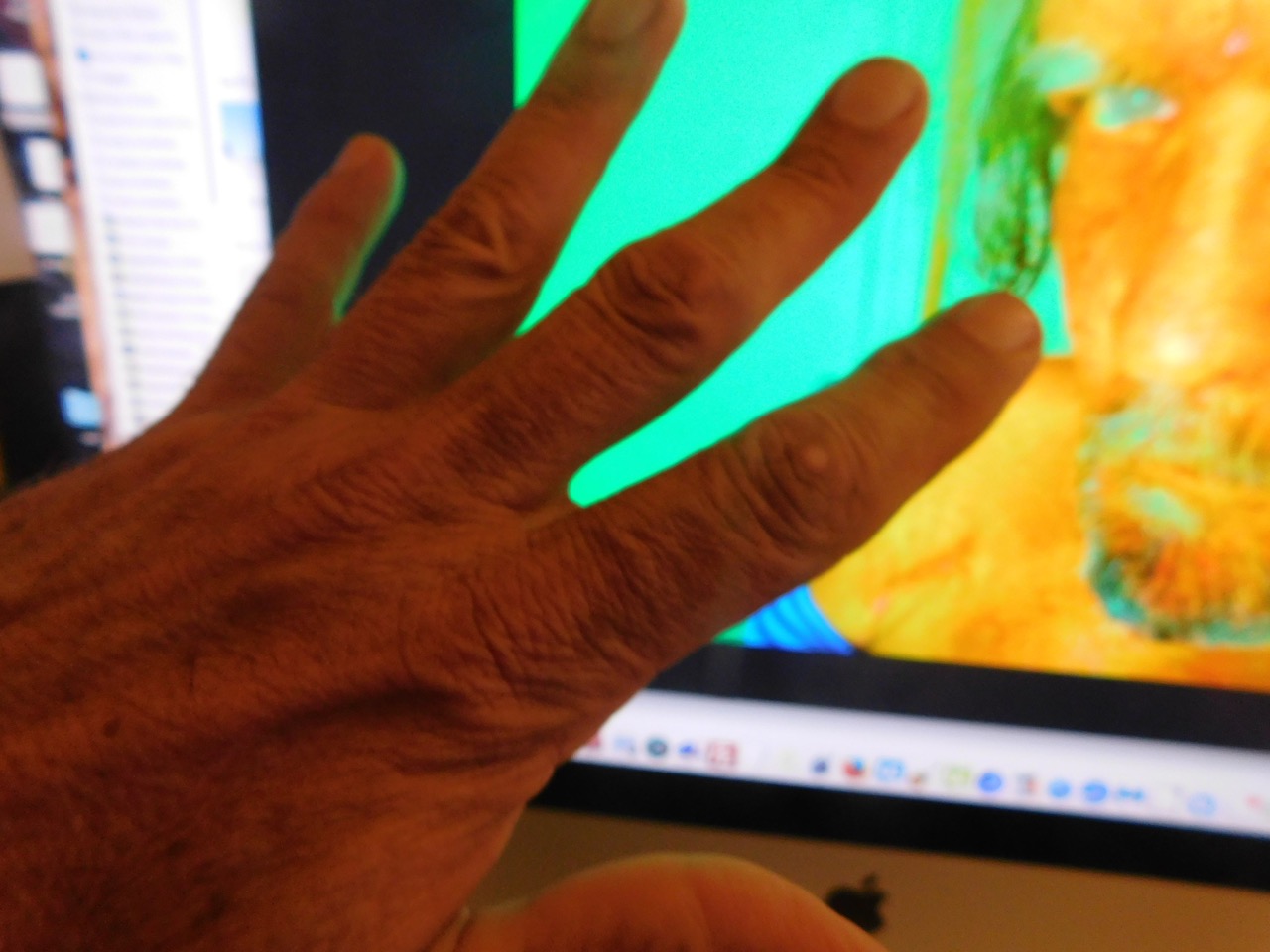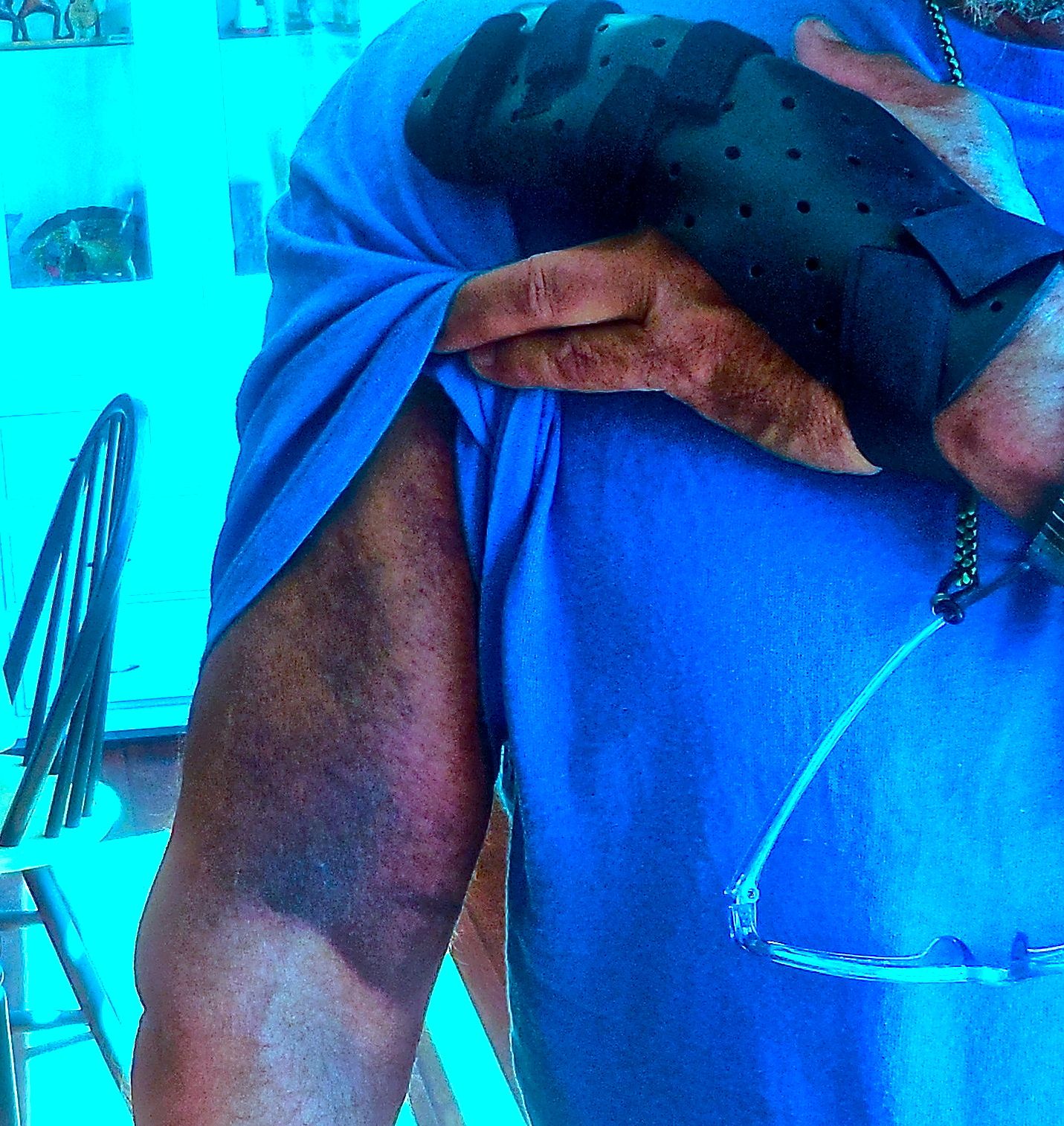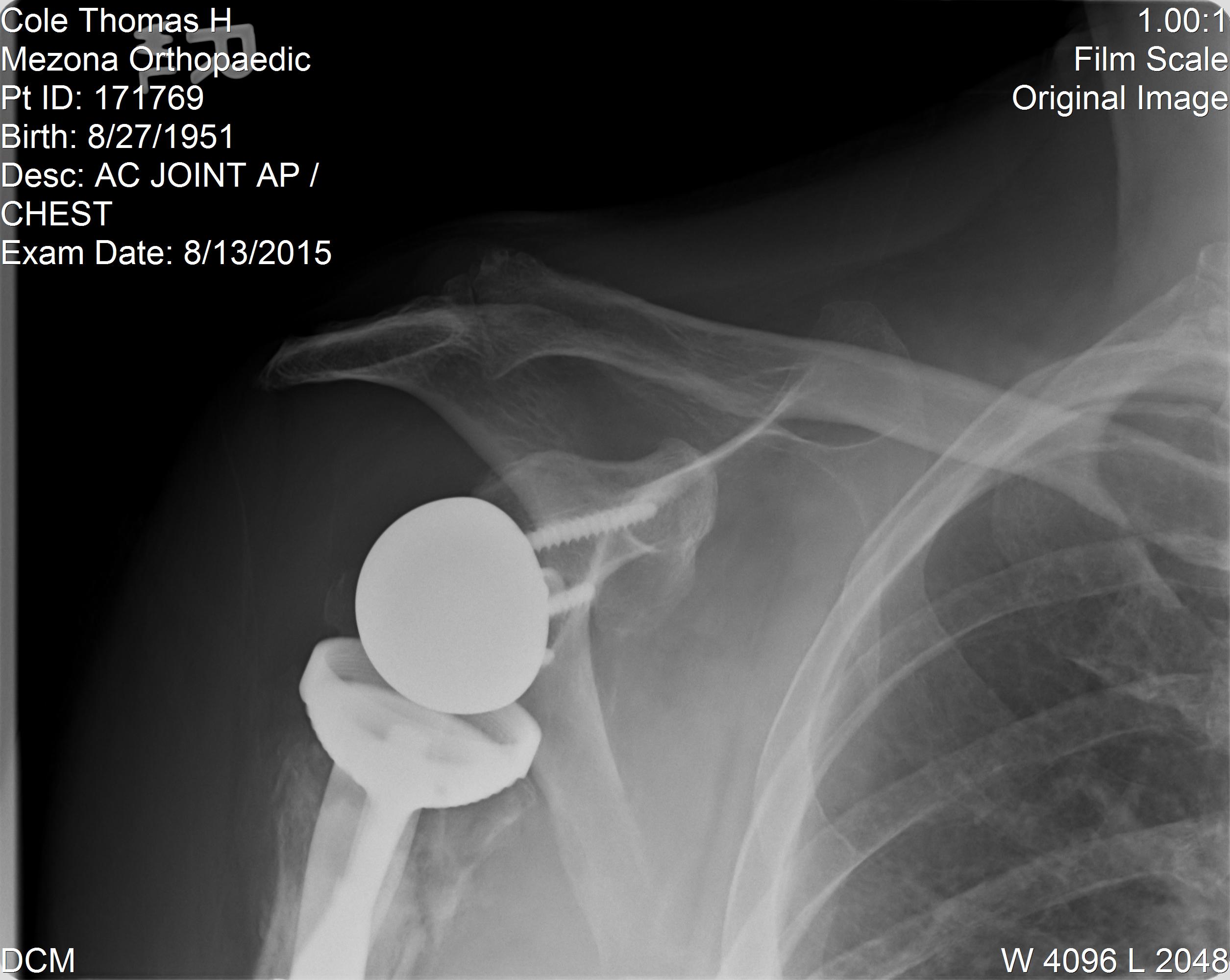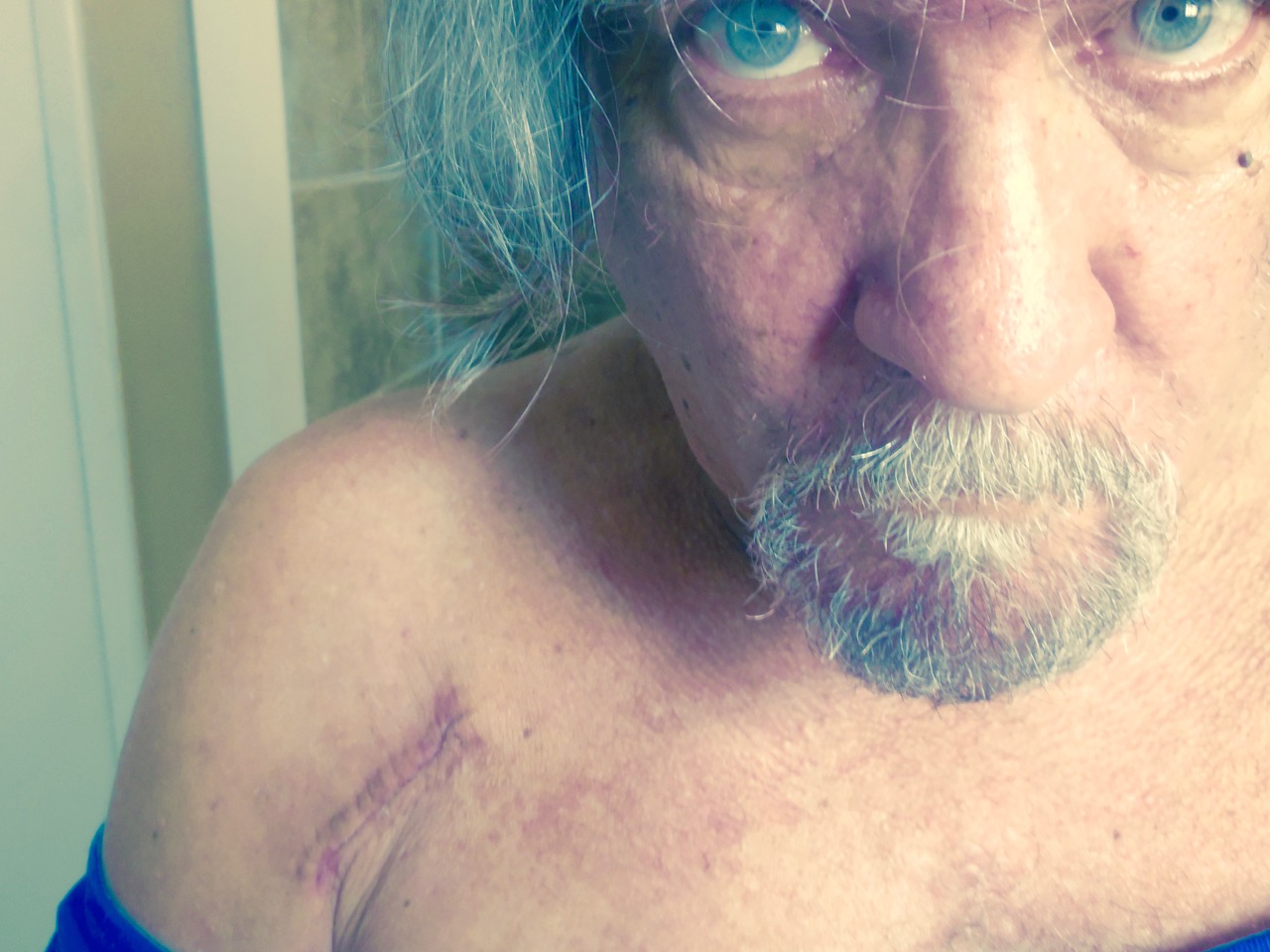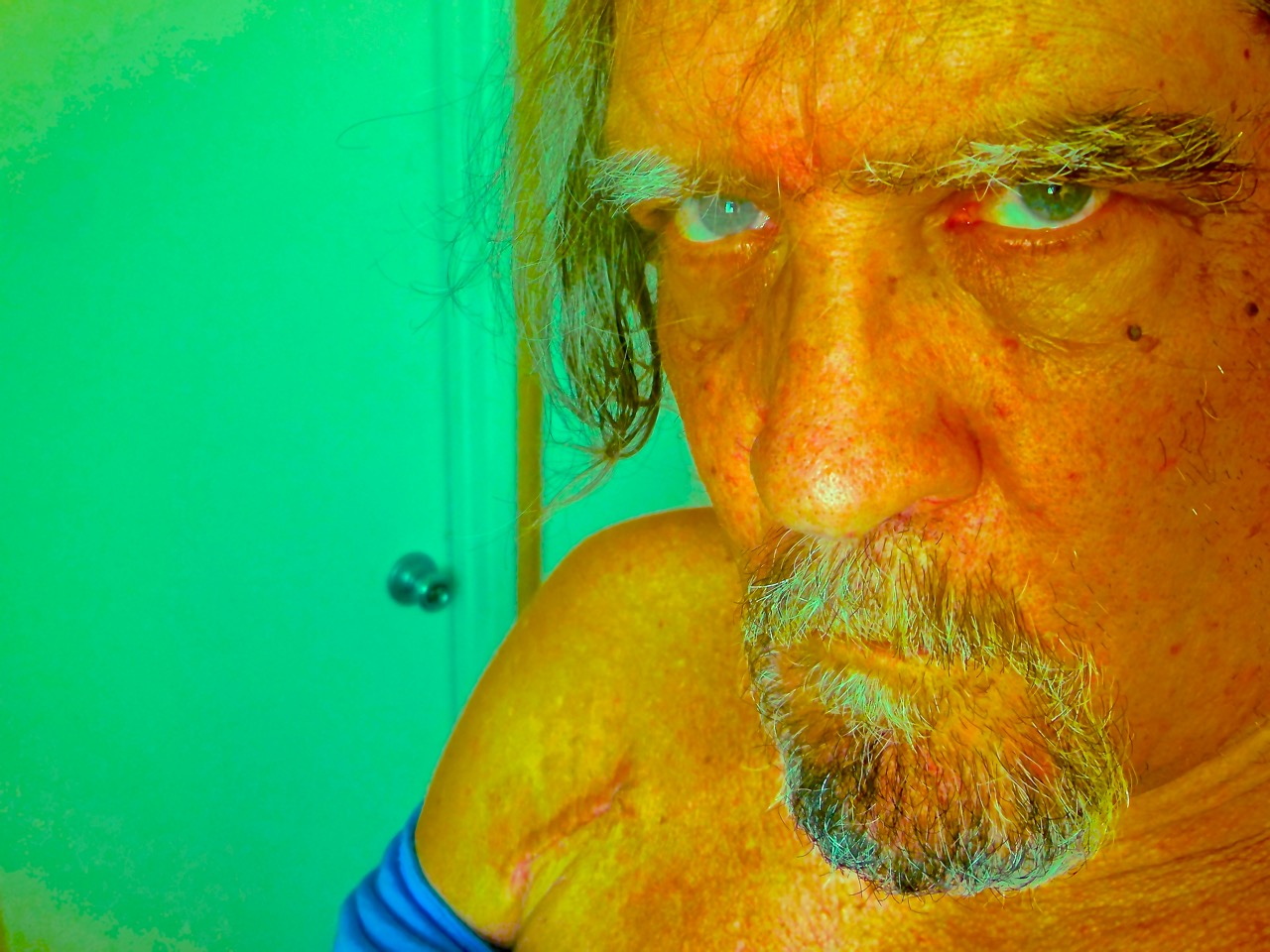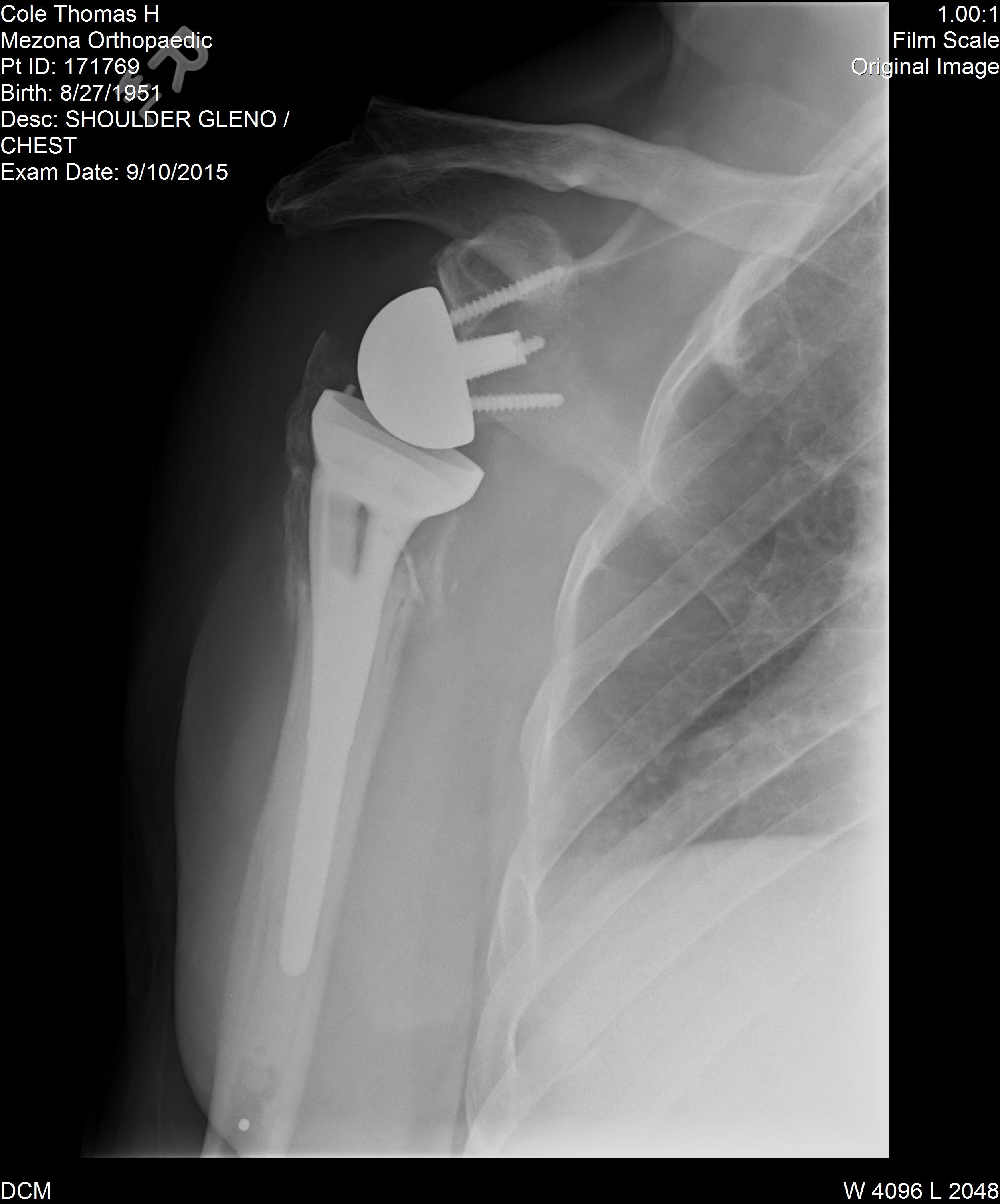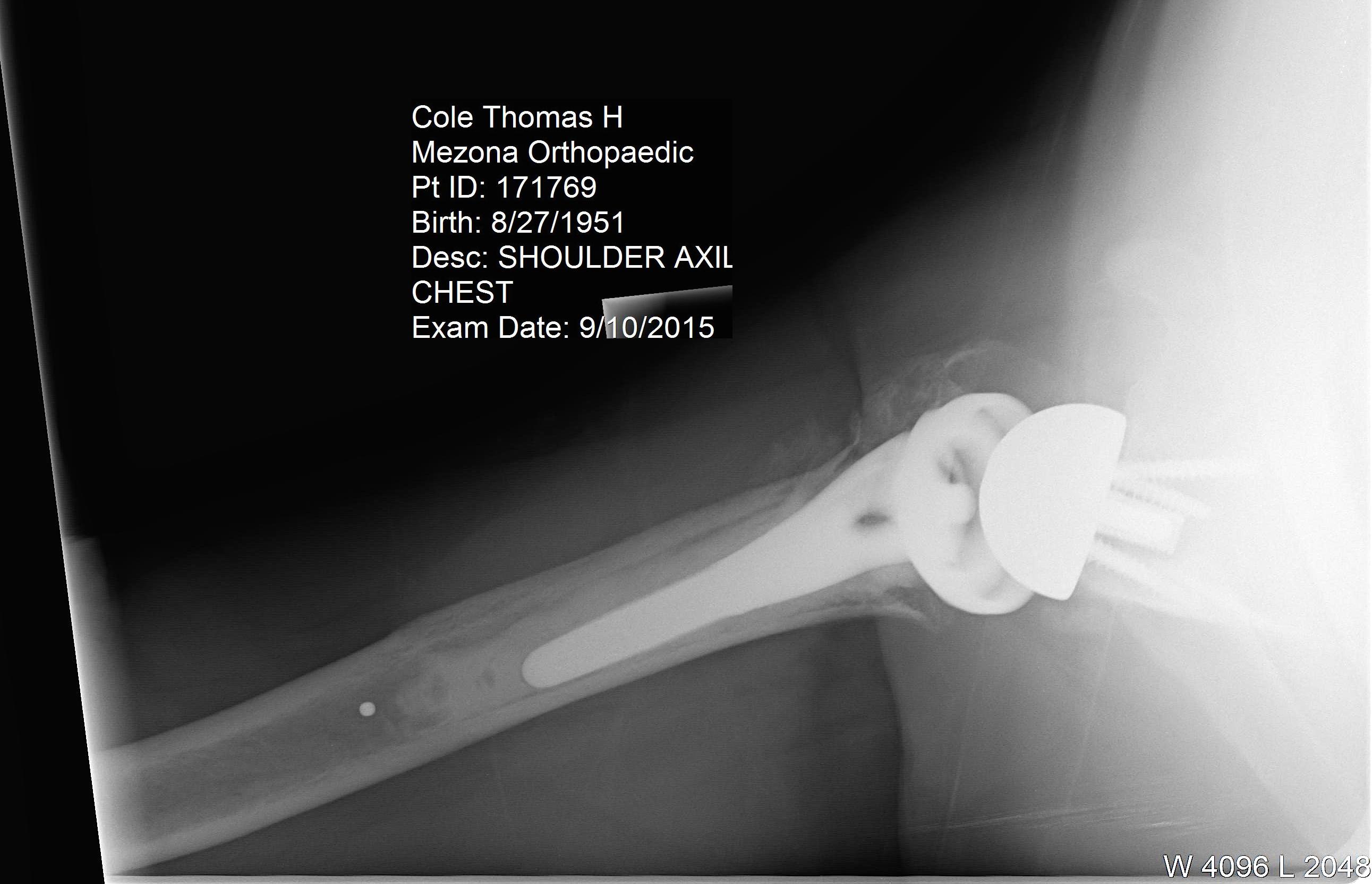19. La caída
Por regla general, la gente no tiene la
capacidad de recordar mucho de lo que le ha
pasado antes de la edad de cinco años. No
obstante, me acuerdo muy bien de lo que me
ocurrió un día cuando debía de tener unos cuatro
años. Me caí de un carrito de compras y me pegué
en la cabeza contra el piso duro de una tienda
de abarrotes que se llamaba El Mercado Weiss.
No me acuerdo de la caída, ni del viaje al
hospital. Sin embargo, recuerdo el sueño que
tuve cuando estaba inconsciente. Había dos filas
de hombres y mujeres vestidos en casacas
blancas. Los de una de las filas me sostenían
las manos y los de la otra los pies y me
rebotaron de uno en uno por un pasillo largo
hasta que, por fin, llegué a la oficina del
médico que me frotó la rodilla con un polvo
verde.
"Qué raro," me decía yo, "que haya puesto el
polvo en la rodilla sabiendo muy bien que el
accidente me hizo daño en la cabeza.”
Recobré conciencia y el médico me dio una
linterna y me enseñó a prenderla y apagarla.
MI HOMBRO
CÍBORG
En junio de 2015 hice una audición para
una actuación en un bar que está a unos cuatro
bloques de donde vivo. Toqué la guitarra y
canté por dos horas y parecía que a ellos les
gustaba porque después me contrataron para
actuar durante la tarde del 4 de julio en la
que iban a tener una fiesta especial.
No iba a poder asistir.
Al llegar a casa, puse mi equipo de sonido en
la cocina. Yo no tenía ganas de guardarlo
porque hacía un año y medio me había caído de
mi bicicleta y me hice daño en el hombro.
Todavía me dolía un poquito. Yo había tenido
terapia, pero no me podían ayudar y al fin
tenía que hacerme una resonancia magnética.
El procedimiento resultó increíblemente
doloroso. Sabía que me iban a meter en un
cilindro blanco que parecía de porcelana y
había oído que los pacientes frecuentemente
tenían una sensación terrible de claustrofobia
al meterse dentro. No creía que eso me
pasara a mí. Me equivoqué.
¡Era como ser cargado en un cañón de cabeza!
El técnico me mostró que los dos extremos del
cilindro estaban abiertos y al saber esto me
pude relajar un poquito.
Por supuesto la claustrofobia no era dolorosa.
Era otra cosa. Si yo no movía el brazo,
empezaría a dolerme y durante el procedimiento
el técnico no me permitía moverme en absoluto.
El dolor aumentaba.
Había un altavoz en el cilindro y cuando el
técnico me preguntó cómo estaba contesté:
—¡Me estoy muriendo!
—Solamente le faltan diez minutos. No se
mueva.
Creía que iba a morir.
Después la médica me mostró el resultado que
estaba en una pantalla aunque confieso que yo
no podía entender lo que veía. Me dijo que se
me había desgarrado un tendón y que estaba
fuera del alcance de ningún cirujano
arreglarlo.
—Las buenas noticias son que puede continuar
andando en bicicleta —me dijo—. Porque en caso
de que se caiga de ella otra vez no es posible
hacerse más daño allí.
—¿No hay nada que se pueda hacer? —le
pregunté.
—Bueno, se podría reemplazar el hombro entero.
Yo creía que se estaba refiriendo a un
reemplazo de los huesos de un cadáver y no
quería tener nada que ver con eso.
—Hay otra cosa —ella dijo—. Tiene dos tendones
desgarrados, pero uno parece ser una herida
vieja y los músculos alrededor de él están
atrofiados.
No recordaba haberme hecho daño en ese hombro
antes.
El hombro me dolía mucho, pero podía tocar la
guitarra en un bar los miércoles y cuando pasó
un año el hombro dejó de dolerme tanto como
antes.
En aquel día de junio yo miraba el equipo en
la cocina. Había dejado unos grandes altavoces
y el amplificador y otras cosas en la parte
central de la cocina por donde de costumbre
pasaba y me dije, "Tom, vas a tropezar con
ello".
Esa noche a las once y veinte, yo apagué las
luces, pasé por la cocina, tropecé con el
equipo y me rompí dos dedos y mi hombro.
En ese momento no sabía que me había roto el
hombro. Me dolía, pero siempre lo hacía. Lo
que me preocupaba eran los dedos, uno de los
cuales se había dislocado y estaba apuntando a
la izquierda. Era totalmente espantoso.
Llamé a mi hermano y me dijo que marcara el
911. Lo hice y los bomberos acudieron a mi
casa. Llegaron con su camión de gancho y
escalera y su ambulancia que yo siempre
llamaba "El Taxi de Lagos del Sol".
Los bomberos me parecían un poquito aburridos
con todo. Me sorprendió que no me hablaban
mucho y no me ofrecían palabras de ánimo. En
el pasado había sido muy impresionado al ver
el profesionalismo de otros bomberos y la
manera de la que aseguraban a personas
heridas.
—¿Tiene dolor en otro sitio? —preguntó un
bombero mirándome la mano.
—Bueno —contesté—. El hombro me duele un
poquito.
Me llevaron al hospital donde me cortaron la
camiseta favorita con tijeras y la doctora me
preguntó:
—¿Me da permiso para colocarle el dedo?
Yo asentí con la cabeza y ella dijo que yo
tenía que contestarle con palabras.
—¿Por qué? —le pregunté.
—De vez en cuando se quiebran.
—Sí, entonces —le dije—. Tiene permiso.
Ella se acercó a mí, agarró el dedo y empezó a
tirar.
Yo empecé a gritar.
Mi hermano me dijo que desperté a cada
paciente en ese piso del hospital.
—¡Ella tenía agallas! —dijo mi hermano más
tarde.
El dedo no se quebró.
Usualmente cuando una persona se rompe un
hueso, el médico se lo puede colocar y enviar
al paciente a casa con su brazo o pierna en
una escayola. Para mí no iba a ser así.
Tenían un aparato semejante a una máquina de
resonancia magnética (No se exactamente lo que
era). y me escanearon el cuerpo con él.
—Dicen que te has roto el hombro —me dijo mi
hermano—. Es malo y tienes que tener un
reemplazo.
Me pusieron la mano en una tablilla y el brazo
en un cabestrillo y me enviaron a casa esa
misma noche. Tenía que esperar diez días antes
de la cirugía. Mientras tanto, fui a ver a un
especialista de manos, un doctor que me dijo:
—Estos dedos te van a dar más problemas que el
hombro mismo.
Me advirtió que lo que tenía era una herida
que típicamente producía rigidez en la mano y
que muy probablemente no iba a poder tocar la
guitarra más.
Mi hermano habló con el cirujano ortopédico
que le dio las directrices que yo tenía que
tener antes de la cirugía. Escribió: 1. no
medicamentos esa mañana 2. no desodorante...
Llegué al hospital bien preparado el día de la
cirugía. Antes de la operación yo estaba en la
cama y mi hermano estaba en el cuarto también.
El anestesista me explicaba lo que iba a
pasar. Luego dijo:
—Vamos a orar.
Nosotros nos enfadamos instantáneamente y
gritamos a la vez:
—¡¡NO!!
En este instante, el anestesista se dio cuenta
de que su egoísta intento de engañar y
manipular había fracasado. Lo teníamos
calado y bien lo sabía.
No me acordé de otra cosa.
Lo que escribí en mi libro Las misteriosas
noches de antaño, ilustra la razón por la que
nos enfadamos tanto. Trata de lo que pasó
cuando mi madre estaba muriendo de cáncer.
Un pastor de no sé dónde se presentó. Era como
los otros zopilotes de su tipo que siempre
vienen para posarse en los árboles cuando
alguien está enfermo.
Mi madre de cortesía dijo que él podría hablar
con ella (a solas).
Después, yo hablé con mi madre que me dijo que
le había dicho a ese pastor que no era
cristiana, pero a él no le importaba. Ella
estaba muy débil y ese clérigo sabía que podía
aprovecharse de ella. Le tomó la mano y empezó
a orar a Jesucristo.
Yo fui en busca de él y pensaba matarlo muy
lentamente con mis propias manos.
Afortunadamente para ese cerdo religioso, se
había marchado saliéndose con la suya.
No quería que mi madre pasara su última día
en el mundo siendo la víctima de tal
predador y al despertar de la cirugía yo
estaba empeñado en que ese anestesista jamás
escapara de mi ira.
Pero tardé mucho en despertar. Puede ser que
ese anestesista me hubiera dado una dosis
doble de anestesia para que yo no recordara lo
que intentó hacer.
Soñé con una enfermera. Era una hembra y
morena versión de Brainiac V9 que se sentaba
en un asiento girando delante de una pantalla
que chispeaba. Yo tenía dolor, pero como ella
me estaba leyendo los pensamientos ya lo sabía
antes de que se lo pudiera decir y ella dijo
que ya había enviado el analgésico. El azul de
sus ojos chapoteó sobre la pantalla.
Pasaron horas.
Antes creía que alguien me iba a avisar: "Ya
ha tenido la operación". como siempre se hace
cuando alguien ha tenido pentotal de sodio y
no ha tenido el sentido de que el tiempo haya
pasado. Pensaba que tendría un despertar
repentino.
Me dijeron que mi sobrino me visitó, pero no
lo recuerdo. Me acuerdo de que el cirujano fue
a verme, pero es un recuerdo borroso. ¿Fue
entonces cuando me dijo que había usado el
índice y el pulgar para sacar la cabeza de mi
humero de la incisión con los restos de mi
brazo? No, me dijo eso más tarde yo creo.
Durante la rehabilitación (en la que usábamos
solamente español), siempre me decían cosas
como:
—Quiero que levantes la pierna diez veces.
¡Cuéntalas!
No podía. Literalmente no podía contar de uno
a diez por una semana y media.
Por dos semanas yo estuve internado en una
facilidad de enfermería. Se negaban a dejarme
ir a casa porque vivo solo y las enfermeras no
querían que me cayera.
Cuando por fin había regresado a casa, unas
enfermeras iban todos los días para darme
terapia. No podía mover el brazo ni siquiera
un centímetro y no podía levantar el brazo.
Una enfermera me levantó el brazo hacia
arriba. El brazo había estado atrapado en el
cabestrillo por mucho tiempo y anhelaba
zafarse de él y estirarse.
—¡Oh! ¡Se está muy a gusto! —le dije.
Ella me enseñó a usar la mano izquierda para
levantar el brazo herido.
El día en él que regresé a casa compré un
ukelele.
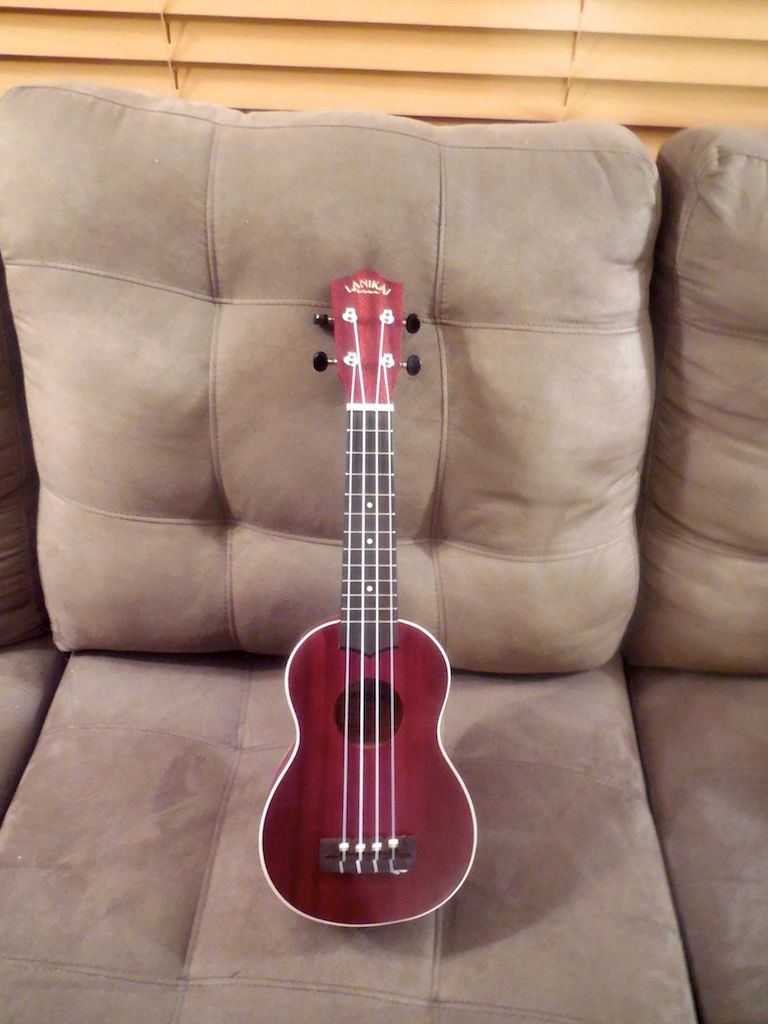 El especialista de manos estaba de
acuerdo conmigo que sería buena idea empezar a
tocarlo en vez de una guitarra. Al principio,
ni siquiera podía cerrar la mano, pero con
mucha terapia empezaba a mejorarse y al fin
recobré el uso de la mano e incluso toqué en
el bar que me había contratado meses antes.
El especialista de manos estaba de
acuerdo conmigo que sería buena idea empezar a
tocarlo en vez de una guitarra. Al principio,
ni siquiera podía cerrar la mano, pero con
mucha terapia empezaba a mejorarse y al fin
recobré el uso de la mano e incluso toqué en
el bar que me había contratado meses antes.
Había otra cosa pendiente, pero tenía que
sacudirme las telas de araña un poquito antes
de llevarla a cabo. Me refiero a la cita que
tenía con un cierto anestesista. Por fin se me
había recuperado el cerebro y podía escribir
mi queja al hospital y al anestesista. No
anduve con rodeos.
Envié al cirujano una carta avisándole lo que
estaba pasando antes de sus cirugías: que el
anestesista acechaba para dar proselitismo a
los pacientes. En el mismo sobre envié la
carta que había escrito al anestesista y media
docena de los superiores del anestesista
también iban a recibir copias incluyendo el
jefe de los tres hospitales del área, Tim
Bricker.
August 17, 2015
Dr. Scott Siebel
Chandler Anesthesia Consultants
PO Box 1847
Gilbert, AZ 85299
Querido Dr. Siebel:
Su práctica de pedir que pacientes participen
en actividades religiosas es poco ética. Digo
esto suponiendo que no soy el único al que ha
tratado de hacer orar con usted.
No tenía ningún derecho de pedir que yo me
uniera con usted para orar justo minutos antes
de mi cirugía mayor. No sabe nada de mis
creencias religiosas y no soy un miembro de su
iglesia.
Conozco a muy poca gente que quisiera
arrodillarse y orar con usted, un completo
desconocido.
Sí, estoy seguro que ha habido otros pacientes
que con mala gana y descontento han consentido
sus raras e inquietantes peticiones sabiendo
que al poco tiempo usted tendría las vidas en
sus manos. Ha podido hacer eso solamente por
la situación intimidante de la que Ud. como
anestesista se puede aprovechar.
Yo estaba en el hospital para tener los
servicios del Dr. Paterson y su anestesista no
para ser su compañero de rezos.
Me negué a orar con usted aunque supiera que
tendría un anestesista que estaba picado por
mi represión y decepcionado por ser privado de
su oración prequirúrgica de costumbre. Tal
doctor podría estar un poquito despistado y
por supuesto no quería esto. Solo por esa
razón claramente era poco ético de usted de
haberme metido en esta situación.
Mercy Gilbert Hospital y Chandler Anesthesia
Consultants, sin querer, me han fallado.
Dr. Siebel, sus superiores necesitan saber que
está aprovechándose de personas enfermas y
dañadas (pacientes de cuyas afiliaciones
religiosas usted no sabe absolutamente nada)
por intentar de imponer sus propias prácticas
religiosas sobre ellos.
Esta clase de comportamiento, este
proselitismo deliberado claramente no se
acepta en ninguna parte.
No quiero tener una respuesta suya. Sin
embargo, quisiera tener respuestas de sus
superiores, en el Mercy Gilbert Hospital,
Chandler Regional Medical Center y Chandler
Anesthesia Consultants.
Me gustaría saber que a otros no se les pedirá
que participen en las actividades religiosas
de su anestesista como yo y que se tomarán
medidas correctivas y disciplinarias
apropiadas para asegurar que tales prácticas
poco éticas y egoístas cesen.
Atentamente,
Tom Cole
En vísperas de septiembre recibí una carta de
su jefe.
Querido Sr. Cole:
He recibido y leído su queja respecto al Dr.
Scott Siebel.
Habiendo conocido al Dr. Siebel por muchos
años, estoy seguro que él no tiene la
intención de hacer mal a nadie. Sin embargo,
él ha sido informado de su descontento y ahora
sabe que no todos derivan consuelo de oración.
Me ha asegurado que esta práctica cesará
inmediatamente.
Quisiera darle las gracias por informarme de
esto.
Terry Ambus MD
Bueno, no podría haber esperado nada mejor. Me
gustaba la palabra "inmediatamente".
Por otra parte, aunque entendía que Dr. Ambus
tenía que defender a su empleado un poquito y
decir que no tenía malas intenciones, no me
gustaba la idea de que el anestesista fuera un
inocentón que no sabía lo que estaba haciendo.
No merecía tal pase. Scott Siebel nunca habría
tratado de orar con un paciente si el cirujano
hubiera estado allí. Habría sido pillado
instantáneamente y él bien lo sabía. El modus
operandi de tales mojigatos es quedarse a
solas con el paciente. Esto es lo que hizo
aquel pastor con mi madre hace años.
Personas de ese pelaje no son tan estúpidas e
ingenuas como nos gusta creer. Mejor dicho, no
son tan estúpidas e ingenuas como ellas mismas
quieren que creamos.
Más vale que el Sr. Siebel sea retratado como
un ingenuo que como el predador que es: un
predador de poca monta tal vez, pero no
obstante un predador.
Escribí corriendo esta carta:
Querido Dr. Ambus:
Nada más una nota para darle las gracias por
su carta. Creo que entendía mi preocupación.
Creo también que se enteró de que yo no había
hecho mi queja a la ligera.
Quisiera decirle que agradezco mucho su
oportuna y apropiada respuesta.
Tom Cole
No todo iba a marchar sobre rieles. Recibí
una respuesta del hospital Mercy
Gilbert. Vino en forma de una simplona carta
de desprecio escrita por un idiota de primera
llamado Philip Fracica. Me puso furioso y
redacté una carta de cinco páginas
destripándole a él y al hospital por haber
contratado a tal retrasado. La consideraba mi
obra maestra entre todas las cartas que había
escrito en la vida y con un gran orgullo la
envié a todas las partes involucradas.
A loathsome man named Fracica
Was known from Maine to Topeka
As an oblivious pulmonologist
A litigious ideologist
And a prodigious religious apologist!
Acusé al hospital de no tener la menor idea de
lo que constaba una política de quejas y para
gran sorpresa mía un día descubrí que al
recibir mi carta el hospital abandonó esa
llamada política completamente: el jefe de los
tres hospitales, Tim Bricker me llamó para
pedir perdón.
Dijo que estaba totalmente de acuerdo conmigo
con cada cosa que había escrito (y yo había
escrito muchas). Me dijo que era un judío a
quien no le gustaba ningún proselitismo e
incluso había llamado a Terry Ambus para
decírselo.
No creo que me estuviera haciendo la pelota
para nada. Hablamos por media hora muchas
veces riéndonos.
Después, algo muy raro e interesante sucedió.
Resultó que había un par de cosas que quisiera
haberle dicho a Tim Bricker. No sé por qué
pero esto me molestaba mucho y empecé a
imaginarme que me hubiera topado con él en
algún restaurante o bar y así tuviera la
oportunidad de hablarle otra vez. Había visto
su foto en la página web del hospital y por
eso sabía que podría reconocerlo. Era una de
esas imaginaciones que supongo que todo el
mundo tiene de vez en cuando.
Un día me decidí a tomar una cerveza en una
cervecería pequeña que se llama La Percha por
sus muchas jaulas llenas de pájaros exóticos.
Yo había actuado allí muchas veces.
Yo estaba gozando de una cerveza de la India
cuando vi a un hombre chaparro vestido de
vaqueros y una camiseta. Le pregunté:
—Es usted Tim Bricker?
—Eso depende de quién lo quiere saber — dijo
sonriendo.
Fue él. Estaba esperando a su esposa así que
charlamos un rato.
Al terminar mi cerveza me levanté
para irme y pasé por la mesa donde ellos
estaban sentados. Él me señaló y me presentó a
su esposa.
—Su esposo leyó cinco páginas de mi
sermón más fino —le dije.
Tim Bricker le miró a su esposa y
asintió con la cabeza.
—Fue un buen sermón —dijo. |
19. The Fall
As a
general rule, people aren't able to remember
much of what happened to them before the age
of five. Just the same, I remember quite well
what happened to me one day when I must have
been four or so. I fell out of a shopping cart
and hit my head against the hard floor of a
grocery store named Weiss's Market.
I don't
remember the fall, nor the trip to the
hospital. I do, however, remember the dream I
had when I was unconscious. There were two
lines of men and women dressed in white coats.
Those in one of the lines held my hands and
those in the other my feet, and they threw me
to one another through a long hallway until,
at last, I arrived in the doctor's office
where he rubbed a green powder on my knee.
How strange, I
said to myself, that he put the powder on my
knee knowing full well that that accident had
injured my head.
I regained
consciousness, and the doctor gave me a
flashlight and taught me how to turn it on and
off.
MY CYBORG SHOULDER
In June of 2015 I auditioned for a gig in
a bar some four blocks from where I live. I
played the guitar and sang for two hours and
it seemed that they liked me because
afterwards they hired me to play during the
afternoon of the fourth of July when they were
having a special party.
I wouldn't be able to make it.
Upon arriving home, I put my sound equipment
in the kitchen. I didn't feel like putting it
away because a year and a half before I had
fallen off my bicycle and hurt my shoulder. It
still hurt a little. I had had therapy, but
they weren't able to help me and finally I had
to have a cat scan.
The procedure turned out to be incredibly
painful. I knew that they were going to stick
me in a white, porcelain-like cylinder and I
had heard that patients frequently had a
terrible sensation of claustrophobia when put
inside. I didn't think this this would happen
to me. I was wrong.
It was like being loaded head first into a
cannon!
The technician showed me that the two ends of
the cylinder were open and when I knew that, I
was able to relax a little.
Of course, the claustrophobia wasn't painful.
It was something else. If I didn't move my
arm, it would begin to hurt and during the
procedure the technician didn't allow me to
move at all.
The pain grew.
There was a speaker in the cylinder and when
the technician asked me how I was, I answered,
"I'm dying!"
"You've only got ten minutes left. Don't
move."
I thought I was going to die.
Afterwards, the doctor showed me the results
that were on a screen although I must confess
that I couldn't understand what I was looking
at. She told me that I had torn off a tendon
and that it was beyond the ability of any
surgeon to repair it.
"The good news is that you can keep riding
your bike because if you ever fall off it
again you won't be able to hurt your shoulder
any more than it already is.
"Isn't there anything you can do?" I asked.
"Well, you could have a complete shoulder
replacement."
I thought that she was talking about a
replacement using the bones of a cadaver and I
didn't want to have anything to do with that.
"There's something else," she said. "You have
torn off two tendons, but one appears to be an
old injury and the muscles around it are
atrophied.
I couldn't remember having hurt my shoulder
before.
My shoulder hurt a lot but I could still play
guitar at a bar Wednesdays and when a year had
gone by, my shoulder stopped hurting as much
as before.
On that day in June, I looked at the equipment
in the kitchen. I had left some big speakers,
the sound system amplifier, and other things
in the central part of the room through which
I was used to walking and I said to myself,
"Tom, you're gonna trip over that."
That night at 11:20, I turned out the lights,
walked through the kitchen, tripped over my
sound system, and broke two fingers and my
shoulder.
At the time I didn't know that I had broken my
shoulder. It hurt, but it always did. What
concerned me most were the fingers, one of
which had been dislocated and was pointing to
the left. It was absolutely ghastly.
I called my brother and he told me to call
911. I did and the firemen rushed to my house.
They arrived with their hook and ladder truck
and their ambulance, which I always used to
call "The Sun Lakes Taxi."
The firemen seemed a little bored with it all.
It surprised me a lot that they didn't talk to
me much and didn't offer words of
encouragement. In the past, I had always been
quite impressed to see the professionalism of
other firemen and the way that they reassured
injured people.
"Do you have pain anywhere else?" a fireman
asked, looking at my hand.
"Well," I answered. "My shoulder hurts a
little."
They took me to the hospital where they cut
off my favorite T-shirt with scissors and the
doctor asked me, "Do I have your permission to
set your finger?"
I nodded and she said that I had to answer her
in words.
"Why?" I asked.
"Sometimes they break."
"All right, then," I told her. "You've got my
permission."
She came up, grabbed my finger, and started
yanking.
And I started screaming.
My brother told me that I woke up every
patient on that floor of the hospital.
"She had guts!" my brother told me later.
The finger didn't break.
Usually when a person breaks a bone, the
doctor can set it and send the patient home
with their arm or leg in a cast. It wouldn't
be that way for me.
They had a piece of equipment like an MRI
machine. (I don't know exactly what it was.)
And they scanned my body with it.
"They say you've broken your shoulder," my
brother told me. "It's bad and you have to
have a replacement."
They put my hand in a splint and my arm in a
sling and sent me home that very night. I had
to wait ten days before the surgery. In the
meantime, I went to see a hand specialist, a
doctor that told me, "These fingers are going
to give you more trouble than the whole
shoulder."
He warned me that I had an injury that
typically resulted in stiffness in the hand
and that quite possibly I would not be able to
play the guitar again.
My brother talked to the orthopedic surgeon
who gave him instructions that I had to follow
before the surgery. He wrote: "1. no
medication that morning 2. no deodorant..."
I arrived at the hospital well prepared on the
day of the surgery. Before the operation, I
was in a bed and my brother was in the room
too. The anesthesiologist explained to me what
was going to happen. Then he said, "Let's say
a short prayer."
We both became furious instantly and yelled at
the same time.
"No!!"
In that moment, the anesthesiologist realized
that his selfish attempt to deceive and
manipulate had failed. He had been caught and
he knew it.
That's the last thing I remember.
What I write in my book, The Mysterious Nights
of Yesteryear, illustrates the reason why we
got so mad. It has to do with what happened
when my mom was dying of cancer.
A pastor from where I don't know showed up. He
was like the other buzzards of his kind that
always come to roost in the trees when
somebody's sick...Out of courtesy, my mother
said that he could talk to her...
I talked to my mother, who told me that she
had told this pastor that she wasn't a
Christian, but he didn't care. She was very
weak and this cleric knew that he could take
advantage of her. He took her hand and began
to pray to Jesus Christ.
I went looking for him, and I aimed to kill
him very slowly with my bare hands.
Fortunately for this religious swine, he had
left, getting away Scott free.
I didn't want my mother to spend her last day
on earth being the victim of such a predator
and upon awakening after the operation I was
bound and determined that this
anesthesiologist would never escape my wrath.
But I took a long time waking up. Perhaps this
anesthesiologist had given me a double dose of
anesthesia so I wouldn't remember what he
tried to pull.
I dreamed about a nurse. She was a brunette,
female version of Brainiac V that was sitting
on a whirling chair in front of a screen that
sparked and glittered. I felt pain, but since
she was reading my mind, she already knew
before I could tell her about it and said she
had already sent the pain killers on the way.
The blue of her eyes splashed across the
screen. Hours crawled by.
I had thought that someone would see me wake
and say, "You've already had your operation."
as they do when someone has had sodium
pentothal and hasn't had any sense of the
passing of time. I thought I would have a
sudden awakening.
They told me that my nephew visited me, but I
don't remember that. I remember that the
surgeon came to see me, but it's a blurry
recollection. Was it then that he told me that
he had used his thumb and index finger to lift
out the head of my humerus along with the
remains of my arm? No, he said that later I
think.
During rehab (in which we used only Spanish),
they always said things like, "I want you to
lift your leg ten times. Count them off!"
But I couldn't. I literally could not count
from one to ten for a week and a half.
For two weeks I was stuck in a rehabilitation
facility. They refused to let me go home
because I live alone and the nurses didn't
want me to fall.When I had at last gone home,
nurses came every day to give me therapy. I
couldn't move my arm a single inch and I
couldn't lift my arm.
A nurse lifted my arm up for me. The arm had
been trapped in the sling for a long time, and
it longed to be free and to stretch.
"Oh, that feels great!" I told her.
She showed me how to use my left hand to lift
my injured arm.
The very day I went home I bought a ukulele.
 The hand specialist agreed with me that it
would be a good idea to start playing it
instead of a guitar. At first, I couldn't even
close my hand, but with a lot of therapy it
began to get better and finally I recovered
the use of my hand and even played in the bar
that had hired me months before.There was
something else pending that I couldn't carry
out until I had shaken the cobwebs from my
mind. I'm talking about the date that I had
with a certain anesthesiologist. At last my
cerebrum recuperated and I was able to compose
my complaint to the hospital and the
anesthesiologist. I didn't beat around the
bush.
The hand specialist agreed with me that it
would be a good idea to start playing it
instead of a guitar. At first, I couldn't even
close my hand, but with a lot of therapy it
began to get better and finally I recovered
the use of my hand and even played in the bar
that had hired me months before.There was
something else pending that I couldn't carry
out until I had shaken the cobwebs from my
mind. I'm talking about the date that I had
with a certain anesthesiologist. At last my
cerebrum recuperated and I was able to compose
my complaint to the hospital and the
anesthesiologist. I didn't beat around the
bush.
I mailed the surgeon a letter advising him of
what was going on just before surgery: that
his anesthesiologist was lying in wait to
proselytize with the patients. In the same
envelope, I enclosed the letter that I had
written to the anesthesiologist and a half
dozen of his superiors were also to receive
copies, including the president and CEO of the
three hospitals in the area, Tim Bricker.
August 17, 2015
Dr. Scott Siebel
Chandler Anesthesia Consultants
Re: ACCT #C14.41813 and Surgery
July 10, 2015 at Mercy Gilbert Hospital
PO Box 1847
Gilbert, AZ 85299
Dear Dr. Siebel:
Your practice of asking patients to
participate in religious activity is
unethical. I say this assuming that I'm not
the only one you have attempted to get to pray
with you.You had no right to ask me to join
you in "a short prayer" just minutes before my
major surgery. You know nothing of my
religious affiliation and I am not a member of
your church.
I know precious few people who would want to
bow down and pray with you, a total stranger.
Yes, I'm sure some of your patients may
reluctantly and unhappily acquiesce to your
strange and unsettling prayer requests knowing
that in only minutes you will literally have
their lives in your hands. But their
acquiescence is due only to the clear
coerciveness of the situation which you as an
anesthesiologist can take advantage of.
I was there as a patient to receive services
from a surgeon, Dr. William Paterson, and his
anesthesiologist--not to be your prayer
partner.
I refused to pray with you even though I
risked having an anesthesiologist that was
miffed by my rebuke or crestfallen at being
denied his customary pre-surgery prayer. Such
a doctor might be just a little off his game
and I certainly didn't want that. For that
reason alone, it was clearly unethical of you
to put me in that position.
Mercy Gilbert and Chandler Anesthesia
Consultants I feel have inadvertently let me
down.Dr. Siebel, your superiors need to know
that you are taking advantage of sick and
injured patients (whose religious affiliations
you know absolutely nothing about) by
attempting to impose your own personal
devotional practices upon them. Such conduct,
such willful proselytizing, is simply
unacceptable anywhere.
I do not wish to have a reply from you. I do,
however, wish to hear from your employers,
Mercy Gilbert Hospital, Chandler Regional
Medical Center, and Chandler Anesthesia
Consultants. I would like to know that others
will not be asked to participate in their
anesthesiologist's religious activities as I
was and that proper remedial and disciplinary
measures will be taken to ensure that such
unethical, self-serving practices will cease.
Sincerely,
Tom Cole
cc: William Paterson, Tim Bricker, Karen
Byrnes, Marcia Bolks, Terry Ambus, Arizona
Medical Board
In the beginning of September, I received a
letter from his boss.
Dear Mr. Cole:
I have received and read your complaint
regarding Dr. Scott Siebel.
Knowing Dr. Siebel for many years, I am sure
he does not intend malice towards anyone.
Nevertheless, your dissatisfaction has been
brought to his attention, and he now realizes
that not everyone is comforted by prayer prior
to surgery. He gave me assurance that this
practice will cease immediately.
I want to thank you for bringing this forward.
Terry Ambus MD
Well, I couldn't have expected anything
better. I liked the word "immediately."
On the other hand, although I understood that
Dr. Ambus had to defend his employee a little
and say that he didn't have bad intentions, I
didn't like the idea that the anesthesiologist
was an innocent who didn't understand what he
was doing. He didn't deserve that pass. Scott
Siebel would never have tried to pray with a
patient if the surgeon had been there. He
would have be caught at once and he knew that
very well. The modus operandi of such holy
rollers is to get the patient alone. That's
what that pastor did with my mother years ago.
People of this lowly sort are not as stupid
and naive as they would like us to believe.
For Scott Siebel, it's better to be scolded as
an naive child than as the predator that he
is: a penny ante predator perhaps but a
predator nonetheless.
I dashed off this letter.
Dear Dr. Ambus:
Just a note to thank you for your reply to my
letter. I feel that you understood my concern.
I also feel that you were aware of the fact
that I did not make this, my first such
complaint, lightly. I want you to know how
much I appreciate your timely and appropriate
response.
Tom Cole
Not everything was to go smoothly. I received
an answer from Mercy Gilbert Hospital. It came
in the form of a simplistic brush-off letter
written by an first class idiot named Philip
Fracica. I was furious and wrote a five-page
letter disemboweling him and the hospital as
well for hiring a such a simpleton. I
considered it my masterpiece among all of the
letters that I had written in my life and it
was with great pride that I mailed it to all
concerned.
A loathsome man named Fracica
Was known from Maine to Topeka
As an oblivious pulmonologist
A litigious ideologist
And a prodigious religious apologist!
I accused the hospital of not having the
slightest idea of what a grievance procedure
was and much to my surprise one day I found
that upon receiving my letter the hospital
abandoned this so-called grievance procedure
entirely: the CEO of the three hospitals Tim
Bricker called me to apologize.
He said that he was in
total agreement with me on each issue about
which I had written (and I had written quite
a lot). He told me that he was Jewish and
didn't like any kind of proselytizing and
had even called Terry Ambus to tell him so.
I don't think he was just
mollifying me at all. We talked for a half
hour laughing a lot of the time.
Afterwards, something quite strange and
interesting happened. It just so happened that
there were a couple of things that I wished I
had said to Tim Bricker. I don't know why but
this bothered me a lot and I began to imagine
having run into him at a restaurant or bar and
that I had the opportunity to talk to him
again. I had seen his picture on the
hospital's web page and so I knew I could
recognize him. It was just one of those
imaginings that I suppose all of us have from
time to time.
One day, I decided to have a beer at a brewery
called The Perch because of its manybird cages
filled with exotic birds. I had played guitar
there many times.
I was having an India pale ale when I spotted
a short man dressed in blue jeans and a
T-shirt.
"Are you Tim Bricker?" I asked him.
"That depends on who wants to know," he said
smiling.
It was him. He was waiting for his wife
and so we chatted for a while.
After I finished my beer, I got up to
go and walked by the table where they were
sitting. He waved me over and introduced me to
his wife.
"Your husband read five pages of my
finest rant," I told her.
Tim Bricker looked at his wife and nodded.
"It was a good rant," he said.
|
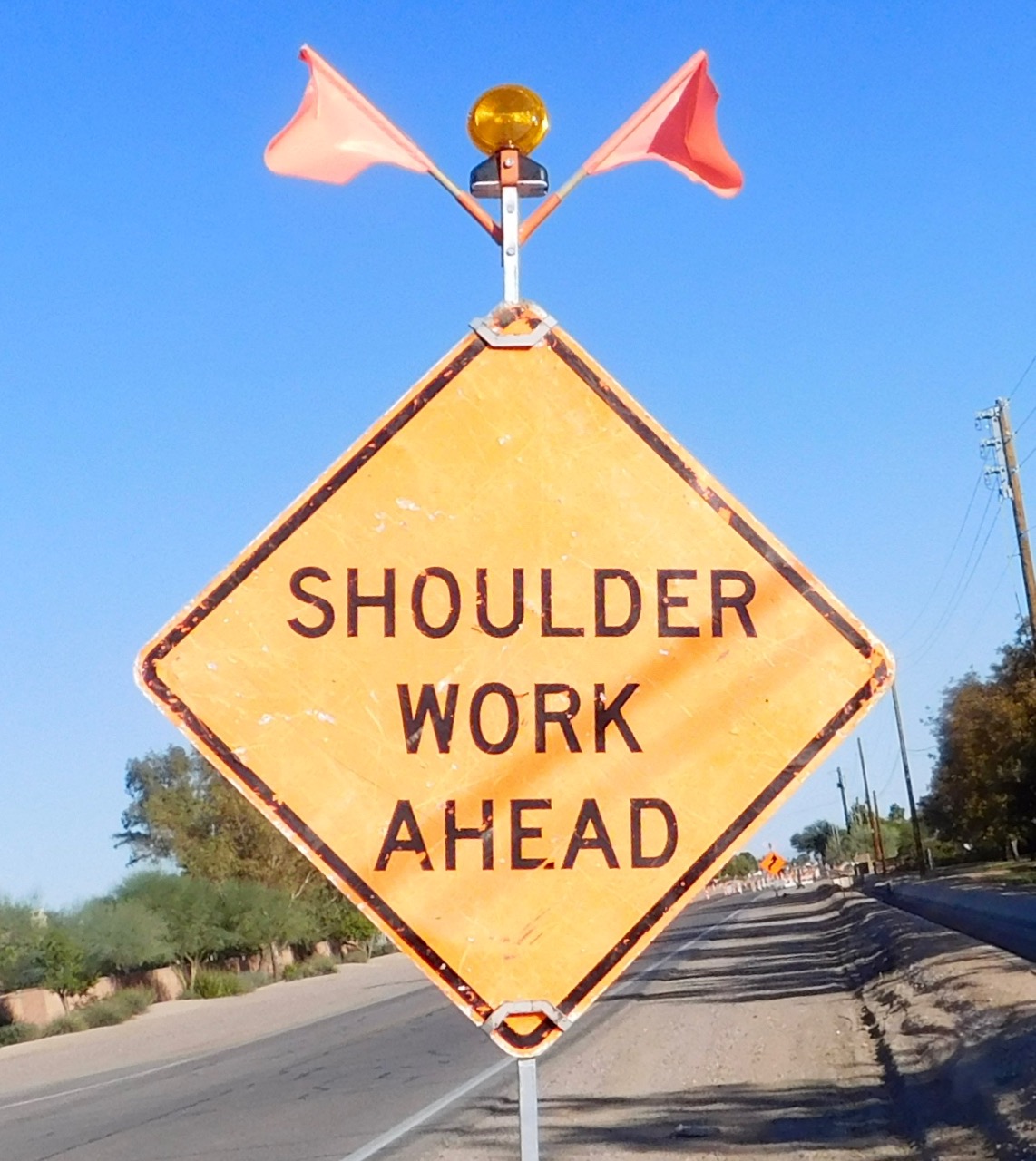
 "You
Replaced My Shoulder and Now I've Got Nowhere to
Put My Head and Cry."
"You
Replaced My Shoulder and Now I've Got Nowhere to
Put My Head and Cry."

 "You
Replaced My Shoulder and Now I've Got Nowhere to
Put My Head and Cry."
"You
Replaced My Shoulder and Now I've Got Nowhere to
Put My Head and Cry."
